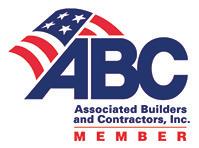LEGISLATIVE PRIORITIES

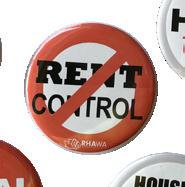
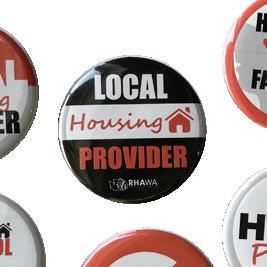










The rental housing industry has undergone drastic changes since 2020. A slew of new landlord-tenant laws has made the rental housing industry much more difficult to navigate than in years past. Furthermore, both prospective and current tenant habits have drastically changed after more than two years of lockdown. While some changes in tenant behavior have been harmful to housing providers, some of it leaves room for opportunity, particularly with changes in the way renters look for housing.

quick look at a prospective tenant’s Facebook profile could help a housing provider better understand how serious the prospective tenant is about their property. They also have an auto-response feature for prospective tenants to ask if a rental is still available, and all communication between buyers and sellers happens in-app. Listings are also easy to create on the facebook marketplace as you can take photos in-app with your phone.
office, highlight it! The same goes for nearby parks, backyards, or fenced-off front yards. Being within walking distance of supermarkets and local restaurants is also a great selling point.
The first place to start when building an effective property listing is to maximize your reach. This means making
A final option to consider is Zumper. Zumper listings also puts you in front of Facebook Marketplace, PadMapper, and Walkcore users, giving you a large
ZUMPER IS ALSO GOOD FOR THOSE OPERATING A SMALLER NUMBER OF
FOR MOST OF THEIR RENTAL BUSINESS NEEDS.
sure your listing finds as many prospective tenants as possible. Nowadays, there are more options than ever to choose from, including: Zillow, Facebook Marketplace, and Zumper.
Zillow, the most popular of the bunch, is one of the most common and trusted sites for listing the rental property. Zillow allows you to list properties for free, but offers a premium package that can help you get more exposure by placing your listing at the top of search results for your area.
Facebook Marketplace is a great option for those who want to greatly increase their listing’s reach but don’t want to spend money. Your listing will tap into their user base of around 2.9 billion users, all of whom are linked with their Facebook accounts. A
reach. Zumper is also good for those operating a smaller number of units who are looking for an easy one-stop shop for most of their rental business needs. Housing providers can collect rent for free, with a paid option for rent protection if you’d like. The service is also free to use for up to 10 listings.
Once you’ve chosen the right listing service(s) for your rentals, you then have to decide how to best market your property. This means highlighting the best features of your rental, taking good pictures, and making sure the unit is clean and ready to show. This is where you use changing tenant habits to your advantage. Even as COVID restrictions have lifted, many tenants still work from home and thus spend much more time there than ever before. If your property has room for a home
Tenants have also been checking out fewer homes before making a decision. Thus, it is more important than ever to provide high quality and well thought out pictures for your listing. Most prospective tenants would prefer the space to be empty; it will be the easiest for them to imagine themselves in the space. However, staging can work to your advantage if done right. Using generic furniture, maximizing open space, and keeping everything clean can help prospective tenants picture themselves in the unit.
Even with an excellent listing, timing the market well will minimize your chances of an extended vacancy. It is no secret that the rental housing market is busiest during the summer. Parents don’t have to break up their kids’ school schedules, college graduates are looking for rentals where their jobs land them, and convenient weather all factors into this. Not only is the rental market hottest during the summer months, but the increased demand also will allow you to maximize the rent that you charge, as rents typically go up during these months. If you are trying to rent in the winter and struggle with vacancy, considering a one time 6 or 18 month lease could help in the long term.
articles featured in Current must be around 650 words, include a byline of the author, and a final paragraph with contact information. Deadline is 15 days before the print date (print date is approximately the 13th of the month proceeding the publication.) Submit to publications@RHAwa.org.
Advertise
For advertising information (rates, production specifications, and deadlines), visit RHAwa.org/advertise
Education + Resources Denise Myers: (206) 905-0614
Event Coordinator Chloe Moser: (206) 905-0600 | cmoser@RHAwa.org
Grassroots Organizer
Daniel Bannon: (206) 905-0609
Member Services Specialist (Resource Desk) Sue Lewis: RHAwa.org/supportcenter
Member Services Specialist (Screening) Val Kushi: (206) 283-0816 | screening@RHAwa.org
RHAWA Current is published every month by the Rental Housing Association of Washington. Copyright ©2023 RHAWA Current with all rights reserved. Reproduction or use without permission of editorial or graphic content in any manner is prohibited. All copyrights, trademarks, and servicemarks are property of their respective owners. P.O. Box 31103 Seattle, Washington, 98103.

RHAWA provides screening services for members. We encourage rental housing providers to screen all prospective adult tenants.
Far more than a simple score, the RHAWA full credit report provides specific and complete details on an applicant's financial history. It allows you to determine their debt-to-income ratio and provides insight into their current level of financial responsibility, as well as past hardships.
When screening a prospective tenant, requiring them to fill out an application for tenancy is one of the most important steps. Not only will you rely on this for checking credit and background information, but you will also need to have this on file if you decide to rent to them. Make sure that the information they provide is both legible and complete.
The Fair Credit Reporting Act requires the applicant’s written acknowledgement to request a consumer report, which determines a consumer’s credit worthiness, credit standing, or credit capacity. Credit information and rental and employment verification information all fall under the definition of a consumer report.
When you run tenant screening on
prospective tenants, you are looking for lots of different information from a variety of sources. The criminal records* are pulled from a criminal records database; eviction records come from a statewide eviction records database. The applicant’s credit report and credit information come from the credit bureaus. When you order your tenant screening report from RHAWA, we wrap it all in one complete, easy-toread report for you.
RHAWA screening uses TransUnion to pull the credit information. The credit information for the prospective tenant is a hard pull from TransUnion. It is an actual report to ensure that the housing provider receives all the pertinent details. This is especially important, considering all the changes that have taken place throughout Washington State.
A credit report can help you determine a person’s financial responsibility. You might not feel a need to require flawless credit, but you may want to make
sure that they are conscientious when it comes to repaying their debt. An actual report can tell you how much debt an individual has and what their monthly financial obligation is for repaying that debt. For example: loans and credit cards. The report can also tell you if they have fallen behind on payments and when. This information is necessary to determine the debt-to-income ratio and make sure that a prospective tenant can afford to pay the rent.
Many screening companies offer credit reports without requiring a certification. They do not require a certification because they provide the housing provider with a “summary” report. The summary report does not include the in-depth information you will find in a full credit report. For example, they may show the applicant’s list of closed creditor accounts, but not provide the reason for why they have closed. This can be valuable information to determine if the applicant wasn’t paying on the accounts and perhaps the creditor
had to close it out as a charge-off, or it went to collection, or perhaps it was a lost or stolen card. A summary report does not provide information about the credit accounts being in arrears and whether they were 30, 60, or 90 days past due. Whereas a full credit report gives full detail of late dates and when the account becomes current in payments. These are just a couple of examples regarding key information missing from summary reports.
Several cities throughout Washington and the State itself have put forth many new ordinances and laws related to screening. The RHAWA screening department ensures that housing providers are getting the details they need to make unbiased and informed decisions, while complying with local laws that restrict certain details such as rent nonpayment during the COVID emergency and criminal history.
RHAWA also offers a class on how to interpret the screening report. You can access it through ONDEMAND education on the RHAWA website.
Don’t let the federally required Certification process deter you from having access to this important information. The RHAWA screening department
Continued on page 26
Denise Myers | Education + Resources Director | dmyers@RHAwa.org | (206) 905-0614
ALL CLASS SESSIONS ARE PRESENTED ONLINE ONLY UNLESS OTHERWISE SPECIFIED.
PM SERIES-04: UNDERSTANDING YOUR MARKET
When: Thursday, March 2 | 12-1pm
Cost: $30 Members | $60 Freemium Subscribers | $90 Guests
In this session, you will learn best practices for developing a successful and satisfying career in the housing industry. We will explore:
• Various career opportunities in the industry and how to develop a career as a real estate professional.
• Education and licensing requirements in Washington State.
• Standards for professional appearance, behaviors, and communication.
Instructor: Enrique Jevons, Property Management Professional.
PM SERIES-05: ADVERTISING AND SALES
When: Thursday, March 9 | 12-1pm
Cost: $30 Members | $60 Freemium Subscribers | $90 Guests
In this session, you will learn best practices for advertising and following up with prospective tenants. We will explore:
• Where to advertise for the best results.
• Tips and best practices when using various platforms.
• Writing appropriate and effective ad copy and effective marketing photography.
• How to build a relationship-based sales process.
Instructor: Cory Brewer, Property Management Professional.
LINK MEETINGS
Casual member meetings with topical discussions. No fee, simply order and pay for food at restaurant venues.
Claim Jumper, Tukwila | Fair Housing
When: Tuesday, March 14, 6:30-8pm
Harbor Lights, Tacoma | Fair Housing
When: Thursday, March 16, 6-7:30pm
Bob’s Burgers, Everett | Fair Housing
When: Thursday, March 16, 6:30-8pm
Duke’s Seafood, Bellevue | Fair Housing
When: Tuesday, March 21, 6:30-8pm
*Meeting time and subject may change. Please check calendar at RHAwa.org/events.
When: Thursday, March 16 | 12-1pm
Cost: $30 Members | $60 Freemium Subscribers | $90 Guests In this session, you will learn best practices for working with prospective tenants close sales quickly with qualified tenants while following all fair housing laws. We will explore:
• Responding to inquiries, explaining rental terms and screening criteria.
• Effective and safe techniques for showing the property.
• Evaluating applications and properly following up with all applicants.
Instructor: Cory Brewer, Property Management Professional.
When: Wednesday, March 22 | 12-1pm
Cost: $30 - Open to All
In this course, experienced real estate attorney, broker and investor, Devin Easterlin, will guide you through the basic principles and skillsets required for successful real estate investing, including:
1. Why real estate investing is the best path to create longterm wealth.
2. How to set your investment goals and then develop a strategy to meet them.
3. How to assemble a winning team.
4. How to run the numbers and find your first (or next) real estate deal.
5. And lastly, how to manage your property effectively and successfully.
Attendees interested in joining RHAWA for the first time will receive a discount on their first annual dues payment.
When: Thursday, March 23 | 12-1pm
Cost: $30 Members | $60 Freemium Subscribers | $90 Guests In this session, you will learn best practices for starting a new tenancy. We will explore:
• Setting lease terms to comply with all local laws
• Reviewing expectations and properly executing the lease
• Welcoming new tenants and move-in logistics
Instructor: Cory Brewer, Property Management Professional.
When: Thursday, March 30 | 12-1pm
Cost: $30 Members | $60 Freemium Subscribers | $90 Guests In this session, you will learn best practices for managing good working relationships with your residents. We will explore:
• Building relationships and creating a sense of community.
• Responding and following up to issues and maintenance requests.
• Managing incident reporting, including documentation and taking corrective action.
Instructor: Alberto Stein Rios, Property Management Professional.
Denise Myers | Education + Resources Director | dmyers@RHAwa.org | (206) 905-0614

About 90% of RHAWA members own less than five rental units. This means they are not often having to fill vacancies, sometimes going years with the same tenants. RHAWA provides tools and resources for owners to self-manage, but it is nearly impossible to remember all the steps when they are not filling vacancies on a routine basis. This checklist can help you make sure important steps are not missed.
• Watch the free ONDEMAND workshop at RHAwa.org/education-ondemand Washington Housing Provider Workshop and/or Seattle Housing Provider Workshop. (Contact dmyers@RHAwa.org or (206) 905-0614 for technical assistance.)
• Google the city where your property is located (or if unincorporated, the county) + rental property registration to see if your city has registration requirements.
• Prepare your rental unit and take photos.
• Set rental rates based on comparable rental units in the area.
• Create Application and Screening Criteria Notice following guidelines from RHAwa.org/rental-forms-leases-notices.
a. Application Criteria Guidelines
b. Application Criteria Guidelines (Seattle)
• If not yet certified, or certification has lapsed, apply for Landlord Screening Certification at RHAwa.org/get-started. This is a Fair Credit Reporting Act (FCRA) requirement for accessing confidential screening reports.
• Place the ad at Zillow.com, Apartments.com, Facebook Marketplace, or similar rental websites, listing your email (recommend separate dedicated email for rental operations) as a contact for inquiries. We recommend turning off the open application feature and requiring a home tour before application. In Seattle, an Application and Screening Criteria Notice must be included in the advertisement. Beware of pervasive fraud issues on Craigslist.com. Best practices are covered in free ONDEMAND classes.
• Create a standard email response that includes your Application and Screening Criteria Notice, a summary of key terms such as monthly rent, utility info, available date, pet/smoking policy, required ID and other documentation, and an invitation to view the home.
• Schedule and conduct a showing of the home. Conduct virtual showings as needed.
• In compliance with fair housing laws, invite all prospects who have seen the home to apply.
• Send an email invite to apply from QuickApp.
• Monitor the QuickApp dashboard for incoming applications (alerts should show in your email).
• Review applications in the order received to confirm the application is complete and required documentation has been submitted.
a. If Yes, submit an application for a screening report.
b. If No, reply to the applicant via email requesting additional information, and move on to the next applicant.
• Evaluate screening report(s).
a. If the applicant meets your screening criteria, offer tenancy.
b. If they do not, deny tenancy in QuickApp, completing the Adverse Action Notice. Then, evaluate the next applicant in order of completed application received.
• Send an email offering tenancy to the first qualified tenant that can accept your offered terms (move in date, rent rate, etc.). It is OK to give preference to an applicant willing to accept more favorable terms, like an earlier move-in date or higher rent.
• If there is a delay before the move-in date, ask the tenant to put down a deposit to secure a tenancy Deposit to Secure Occupancy & Receipt. Or, if the unit is currently vacant, you can have them sign the lease and pay the first month’s rent.
• Select the lease form and fill in all terms.
a. Use a single-family version when renting the entire property to a tenant.
b. Use a multi-family version when tenants share common areas.
c. Use a Rental Agreement when you are comfortable with “for cause termination” laws and having an “evergreen” rental agreement.
d. Use the Term Lease when you need to maintain the right to end a tenancy without having to give a “good cause” (local laws vary).
e. Attach all required addenda.
• Complete the Property Condition Checklist before move-in day including detailed notes and photos documenting pre-move-in condition.
• Schedule a meeting for move-in day.
• Meet the new tenants on move-day at the home:
a. Walkthrough and review property condition. Allow the tenant to make corrections as needed, and then have them sign the checklist. (Note: In compliance with State Law, do not collect the security deposit until the tenant signs this document). Let the tenant know that if they find something wrong in the first week or two of tenancy you will repair it.
b. Explain/show how to care for the property including, water shut-off valves, cleaning products/procedures for flooring, care of landscaping if applicable, and any other special rules or features of the property.
c. Provide courtesy products such as drain zips, non-damaging picture hangers, toilet paper, or other items to make their move-in easier.
d. Collect all outstanding move-in costs, including the security deposit, and first/last month’s rent. Non-refundable fees are not recommended as a best practice with the exception of an HOA move-in fee (not permitted in Seattle).
e. If a tenant requests it, you must allow them to pay move-in costs on an installment plan.
i. Use the form Deposit Payment Schedule (Extended) for properties in Burien, Kenmore, Kirkland, Redmond, and Seattle.
ii. Use the form Deposit Payment Schedule (WA State) in all other areas in WA State.
f. Review the lease in detail, making sure they understand all terms and rules. Sign if not already digitally signed.
g. Introduce to neighboring tenants and community amenities if applicable.
h. Provide contact information and explain when to call for repairs, and what they should do themselves (e.g., change detector batteries, change light bulbs, unclog drains/toilets, etc.)
i. Only after all the above steps, the tenant the keys, garage opener, etc.
• Start tenant file and ledger. File leasing documents and account for all payments.
• If you have questions about rental operations, laws, and best practices, go to RHAwa.org/support-center to find relevant articles and/or ask a question for our Support Center staff. Questions are generally answered within one business day.
All written, presented and recorded content provided by RHAWA for this course are for the use of the participants enrolled in the course. Copyrighted course content may not be further disseminated. Formal legal advice and review is recommended prior to selection and use of this information. RHAWA does not represent your selection or execution of this information as appropriate for your specific circumstance. The material contained and represented herein, although obtained from reliable sources, is not considered legal advice or to be used as a substitution for legal counsel. Event Cancellation and other policies RHAwa.org/cancellation-policy.








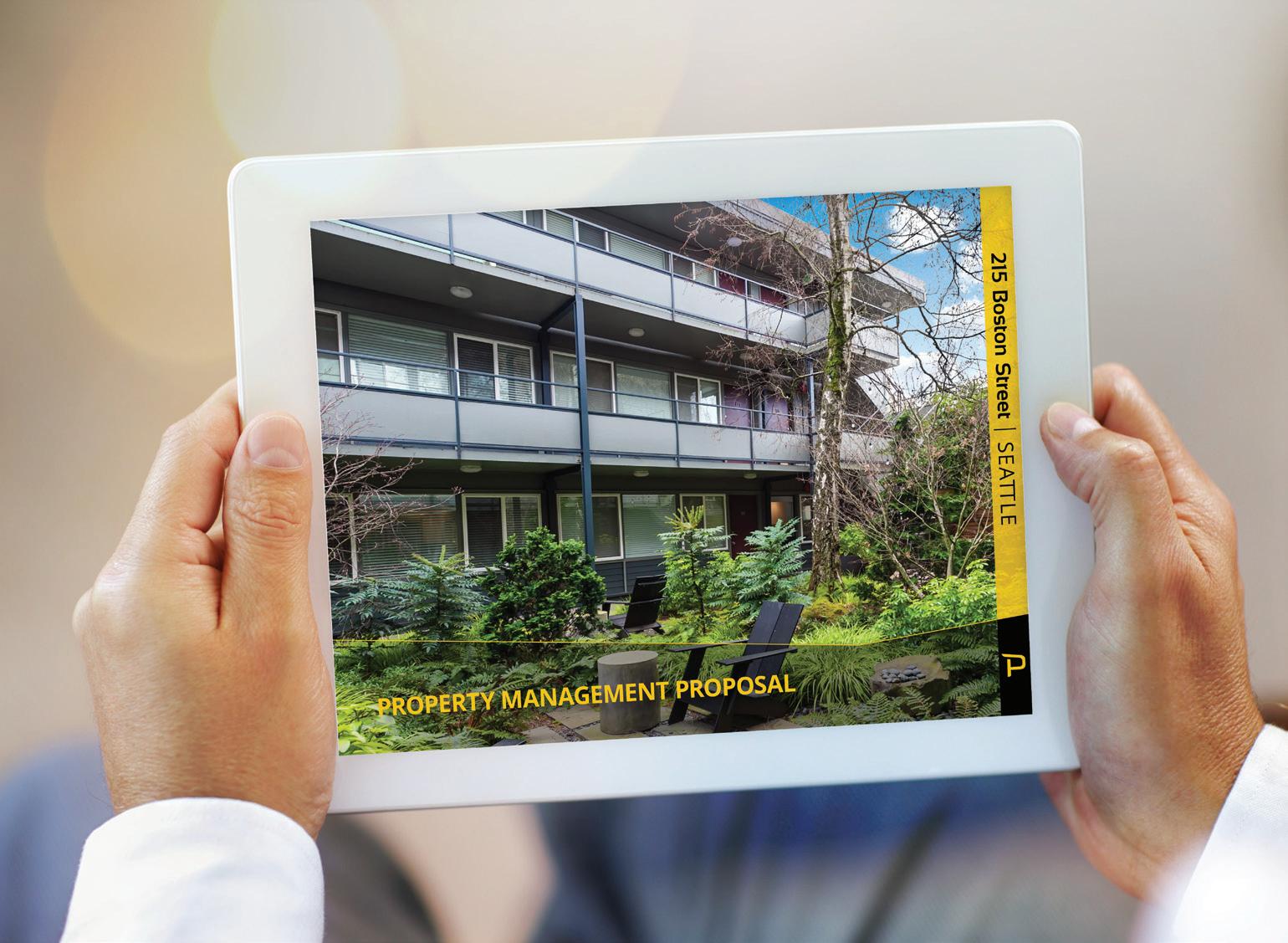
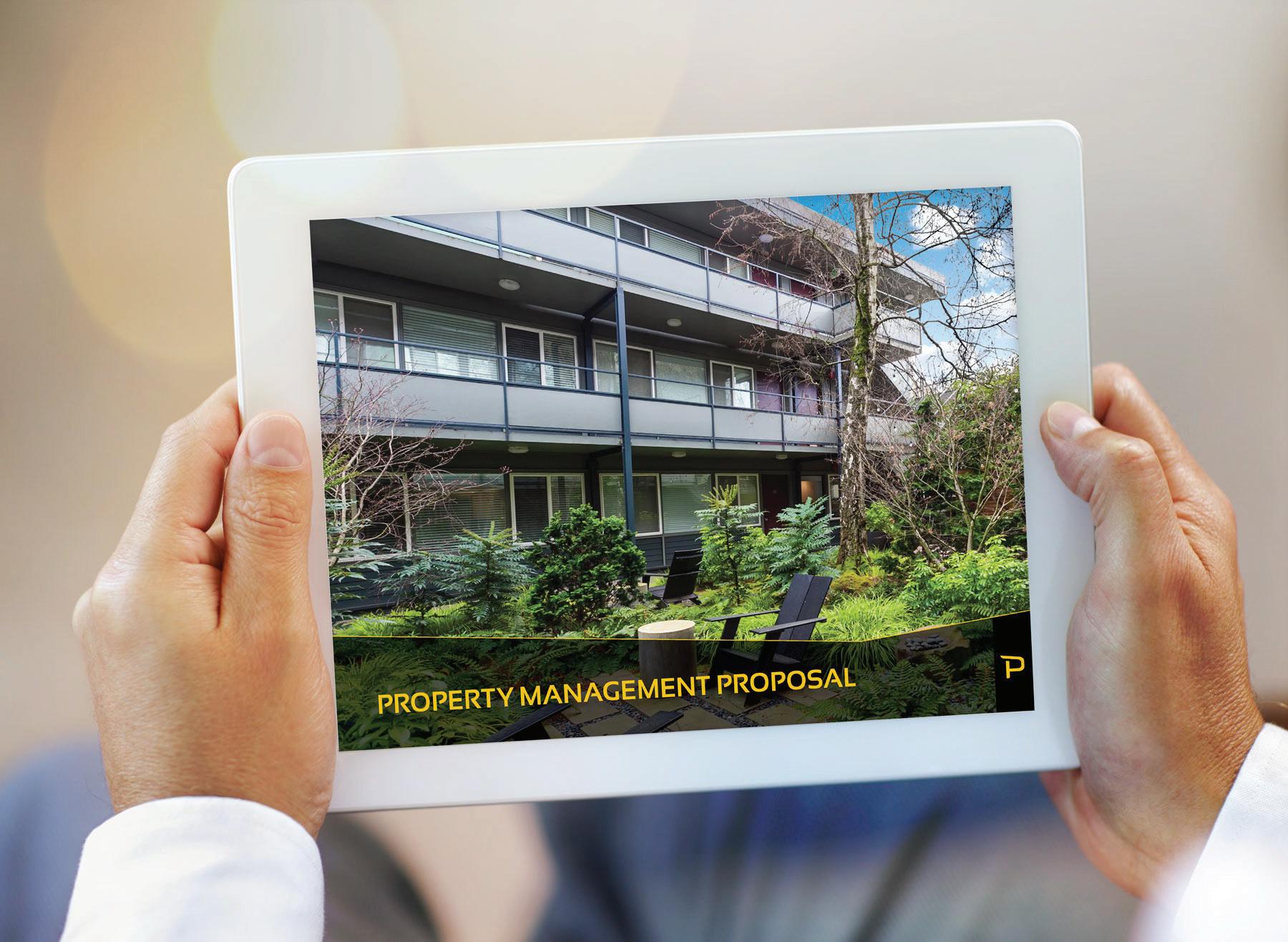
Bowlin, CPA


Paying taxes on the sale of an investment property can be expensive, especially if you live in a high-tax state. Not only are you responsible for Federal Capital Gains Tax (15% – 20%) and Depreciation Recapture Tax (25%), but you may also have to pay State Capital Gains Tax (0-13.3%), and Net Investment Income Tax (3.8%).
As a Washington property owner, you can pay up to 28.8% in taxes when selling your investment property. If you have plans to sell in 2023, a 1031 Exchange can be an excellent strategy to avoid paying a substantial tax bill.
What is a 1031 Exchange?
A 1031 Exchange, also known as a "like-kind" Exchange, gets its name from Section 1031 of the U.S. Internal Revenue Code. By performing a 1031 Exchange, you can sell investment real estate without paying tax if you reinvest the sales proceeds into like-kind investment property of equal or greater value and adhere to IRC 1031 rules and timing requirements. And, because the IRS defines "like-kind" as any real estate of the same nature or class (not
of the same quality or property type), you can exchange any real estate held for business or investment purposes for other real estate held for business or investment purposes, regardless of the property type.
Calculate Your 1031 Exchange Tax Savings: 5 Easy Steps
The tax liability on the sale of investment real estate is not just about federal capital gains tax – it is the total aggregate amount of tax owed when selling an investment property.
As a 1031 Exchange advisory firm, one of the first things we do when working with clients is to help them understand their tax liability and discuss tax-deferral options.
Federal and state tax authorities calculate the amount you owe based on the taxable gain (capital gain i.e. appreciation and depreciation recapture), not the gross proceeds from the sale of the property. To estimate the total tax liability from the sale of an asset, follow these five steps:
Step 1: Estimate the Net Sales Proceeds
Start by determining the fair market value of the investment property or the list price if you brought the property to market. There are several ways to calculate the sales price, but the most popular are the income method and the comparable sale method. With the income method, divide the current or estimated net operating income (“NOI”) by the target capitalization rate (“cap rate”). With the comparable sales method, an investor determines a value based on recent sales of similar local properties, both in terms of size and quality. Smaller properties and single-family rentals typically rely on the comparable sales method, while larger properties rely on net operating income to determine value. Most investors work with an experienced broker to set a supportable sales price. For example, let’s assume a comparison of similar local properties indicates a property may sell for $3,500,000 with $250,000 in deductible selling costs such as brokerage costs, title, escrow, and excise tax (if applicable). In this scenario, the net sales proceeds would be $3,250,000.
Importantly, the net sales proceeds do not consider any loan balances paid off at closing.
The remaining tax basis, also known as the remaining basis, is the total capital an owner has invested and capitalized in the asset, including the purchase price, closing costs, and capitalized improvements less the accumulated depreciation taken over the ownership period. For example, if you purchased the property for $850,000, invested $200,000 in capital improvements, and have $750,000 in depreciation, your remaining basis is $300,000. There are some limitations to the items you can include in a tax basis. Mortgage insurance premiums and routine maintenance costs are examples of items that are not included. A tax advisor can help to determine your property's current remaining basis, which can be adjusted based on capital improvements and tax deductions.
• Increasing the Tax Basis: Property owners will increase their tax basis anytime they invest money into the
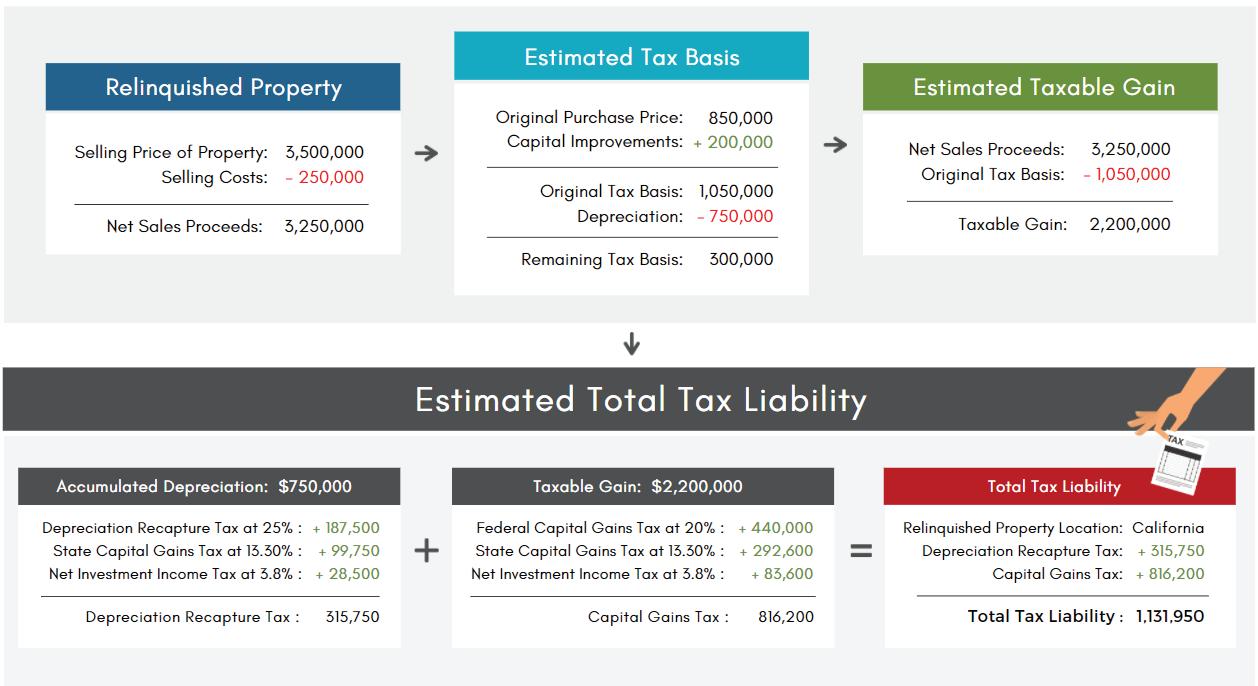
property with capitalized improvements—such as a new kitchen, roof, or even an addition, as well as financing expenses. Expenses paid to operate the property, like legal fees, management expenses, and minor repairs, are not capitalized and instead treated as operating expenses which are deductible in the year they are expended. Capitalized improvements increase your investment in the property and are deducted from the net sales proceeds at the time of the sale to arrive at the property's capital gain.
• While some of these costs are intrinsic to real estate investment, like escrow fees, others are flexible. For example, a new roof, an upgrade to the kitchen, or adding a pool are capital improvements that have a wide range of costs, giving the owner some flexibility in the amount they can increase the tax basis of the asset versus deducting in the current year as operating expenses.
• Decreasing the Tax Basis: Owners of investment real estate that include a building or structure must also lower the property’s tax basis,
ultimately increasing the figure used to calculate the second form of gain referred to as “depreciation recapture.” The most common way to decrease the tax basis is through an annual depreciation deduction. The deduction is subtracted from the original tax basis on an annual basis and treated as a tax expense, offsetting income which is then “recaptured” at the time of sale. While it might seem unexpected to decrease your tax basis and eventually increase your tax costs, the depreciation deduction reduces an investor's annual taxable income and, thus, income tax due during the years of ownership. Note that depreciation recapture is not optional. Investors will be charged for depreciation recapture on the aggregate amount of available depreciation throughout the period of ownership regardless of whether they recorded depreciation expense. In addition, easements, some insurance reimbursements, and other tax deductions, like personal property deductions, can also decrease your tax basis.
The taxable gain is the realized return or profit from the sale of an asset, or, in other words, it is the net sales proceeds less the original tax basis, pre-depreciation. Tax authorities like the IRS use the taxable gain figure to determine the capital gains tax. To calculate the taxable gain, subtract the original tax basis from the net sale proceeds. Using the earlier example, if your original tax basis is $1,050,000 and the net proceeds from the sale of the property are $3,250,000, your taxable gain is $2,200,000. The second part of the tax liability is calculated based on the amount of depreciation available to take over the period of ownership – referred to as accumulated depreciation. Based on the details above, this amount is $750,000.
Your income, tax filing status, the state where you pay income taxes, and the property's location will determine your capital gains tax rate. The IRS, most state governments, and some local municipalities collect a tax on both the
capital gain and depreciation recapture from the sale of investment property, increasing the total tax rate due and thus increasing your tax bill.
At the federal level, the capital gains tax rate is 0% for investors with an annual income (including gains resulting from asset sales) less than $44,625 (single) / $89,250 (married filing jointly); 15% for investors with an annual income from $44,626 - $492,300 (single) / $89,251 to $553,850 (married filing jointly); and 20% for investors with an annual income above $492,301 (single) / $553,851 (married filing jointly). Most state tax authorities collect income tax rates on capital gains as well. The state tax rate ranges from 0% to 13.3%. California is at the top of the list with a 13.3% tax rate, while some states, like Texas, Washington, and Florida, do not collect state income taxes.


Our Annual Spring Workshop + Tradeshow will be held at the enchanting urban oasis: Cedarbrook Lodge , conveniently located near SeaTac. This is your best opportunity to gather the latest insights from across the industry in one day for your rental business.
Saturday, May 13
9 am – 3 pm
• Discover numerous skilled service providers at the tradeshow.
• Select from 12 expert-led educational breakout sessions with attorneys and industry professionals.
• Indulge in gourmet lunch and happy hour. Parking included. Register@RHAwa.org/swts
Tickets go onsale March 3!
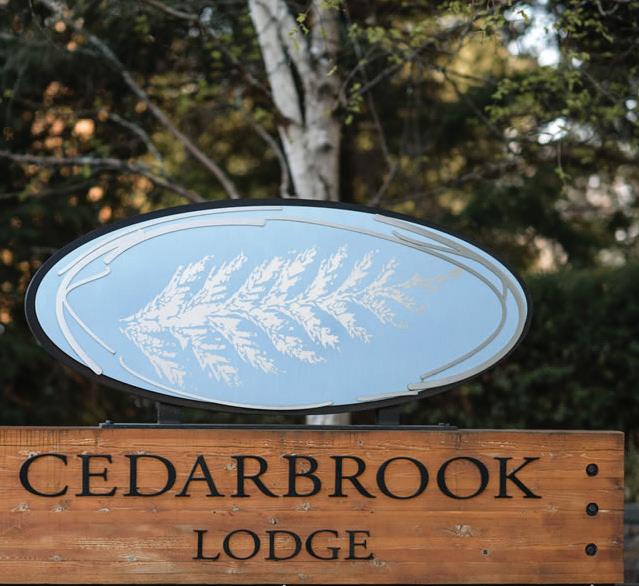


For more information, contact Chloe Moser: cmoser@RHAwa.org


Brian Platt, Michael Urquhart and Ben Douglas | Paragon Real Estate Advisors | Vendor Member
As active multifamily brokers in the Puget Sound area, we have seen and been involved in more and more seller-financed transactions. Deals requiring a buyer to get a market-rate loan are falling short of sellers pricing expectations due to the increase in interest rates, the uncertainty of where they will go next, and the high down payment requirement from lenders. Seller financing has bridged the financing gap and carved a path for both the buyer and seller to meet their financial goals.
Seller financing is a viable alternative to traditional financing if you, the owner, own the building free and clear or have a very small loan amount left. This form of financing allows a buyer to purchase the property with a higher amount of leverage and a lower interest rate, allowing them to pay an otherwise above-market price.
In this current market with interest rates 2.75% higher than they were 12 months ago, seller financing allows for you to provide the buyer with the opportunity for a smaller down payment and a lower interest rate. What we see most often is an interest-only loan which requires 20-30% down and an interest rate of 0.5%-1.5% below current rates. The loan duration tends to be 3-10 years and has a balloon payment that is due at the end of the loan term. The great aspect of seller financing is you can create a loan with terms that work best for you based on your investment horizon and goals. Here are some of the pros and cons of seller financing:
PROS:
Aggressive Pricing: Since the buyer can get more favorable loan pricing and terms you would be able to price your property more aggressively. It would allow your property to trade at a price higher than the otherwise current market value.
No Management Cash Flow: You would be able to continue receiving cash flow from the property without the hassle of having to manage the building yourself or with a property manager. The buyer would make their monthly interest payments to you through a third-party facilitator that is set up with escrow at closing. We see owners receive equal or greater monthly cash flow without having to answer any more running toilet calls.

Tax Benefits: An owner would only have to pay capital gains tax on the initial down payment and could defer the tax burden of the balloon payment. Since the monthly payments are interest-only, they are treated as ordinary income and are taxed at a lower rate.
Continued Involvement: As opposed to cashing out with the sale of the property and moving on to your next endeavor, you would still be loosely tied to the property. If the buyer stopped performing on their loan payments, then you would regain the rights to the property and go through the sales process again. If handled correctly during the original sale, this should never happen as it is important to properly vet the buyer’s financials and real estate track record.
To give a real-world example of how this plays out, here is a case study of one of our recent sales:
• Sale price: $3,200,000
• Financing terms: 5 years interest-only with interest rates of 4%, 4.25%, and 4.5% for years 1, 2, and 3 through 5 respectively
• 75% Loan-to-Value
SELLERS POSITION BEFORE SALE:
• Current Net Operating Income from the property was $102,000.
• Exhausted from management responsibilities.
• Had a big capital gains tax liability.
• Relied on the passive income from the property.
• Owned the property free and clear.
• Moving towards retirement.
SELLER’S POSITION AFTER SALE:
• Received $800,000 at closing.
• Interest payments for years 1, 2, and 3-5: $96,000
- $102,000 - $108,000 respectively
• $2,400,000 balloon payment at the end of year 5.
• Zero headaches from management responsibilities.
• Freedom to pursue hobbies, travel, etc.
• Sold at an above-market price (3.8% CAP rate).
• Deferred Capital gains for 5 years.



• Received a personal guaranty on the loan from the Buyer.
Call us if you are curious about how seller financing would affect your property’s pricing. We would be happy to give you an updated market valuation and provide you with an array of exit strategies to help you make the best decision. Brian Platt at Brian@ParagonREA.com (206)251-8483, Michael Urquhart at Michael@ParagonREA. com (425)999-6650, or Ben Douglas at Ben@ParagonREA.com (206) 658-7247.
Denise Myers | Education + Resources Director | dmyers@RHAwa.org | (206) 905-0614

Check out the latest in our Support Center where we have completed law summary articles for Redmond, Burien, Kenmore, and Kirkland as well as a few articles on specific areas of Seattle law. In addition, we’ve created a separate article called Local Government Rental Law Codes which simply lists all of the local government rental regulations we are aware of, including links to either the code or ordinance if it is not yet codified. This list of local law references includes eleven cities (+ one county) with extensive rental regulations, and an additional ten cities that have rental registration/inspection programs, but
no other rental regulations. Our goal is to provide members with law summary articles for all of these and more as new laws appear.
As we work to write summaries of all city laws, remember, we already have instructions with our forms that reflect all local laws. RHAWA members can access these instructions within various tenant notice forms, and in the Lease Signing section, there is a separate instruction document, Leasing Requirements by Local Jurisdiction
City of Kirkland Law Summary
These policies are found in the following code: Kirkland Tenant Protections KMC 7.75 and apply to tenancies governed by RCW Chapter 59.18 (RLTA) and RCW Chapter 59.20 (Manufactured/Mobile Home Landlord-Tenant Act)
The total of all move-in fees and deposits charged by the landlord must not exceed one month's rent, except in subsidized housing where the monthly rent is based on the tenant’s income. A landlord and tenant can agree to higher deposit and/or fees if an agreement to waive provisions in the law is in writing, is not part of the standard lease agreement, and an attorney for the tenant has approved the waiver agreement.
• Tenants entering rental agreements with terms lasting six or more months may choose to pay their move-in fees and security deposits in six equal monthly installments over the first six months of occupying the dwelling unit.
• Tenants entering rental agreements with terms lasting fewer than six
months or month-to-month rental agreements, may choose to pay move-in fees and security deposits in two equal monthly installments over the first two months of occupying the dwelling unit.
• When raising rent at the beginning of a rental period or term lease renewal, landlords must give:
• 120 days' written notice for rent increases greater than three percent (3%); or
• 180 days' written notice for rent increases greater than ten percent (10%).
• As required under WA State law, 60 days written notice for any rent increases of 3% or less.
All written, presented and recorded content provided by RHAWA for this course are for the use of the participants enrolled in the course. Copyrighted course content may not be further disseminated. Formal legal advice and review is recommended prior to selection and use of this information. RHAWA does not represent your selection or execution of this information as appropriate for your specific circumstance. The material contained and represented herein, although obtained from reliable sources, is not considered legal advice or to be used as a substitution for legal counsel. Event Cancellation and other policies RHAwa.org/cancellation-policy.
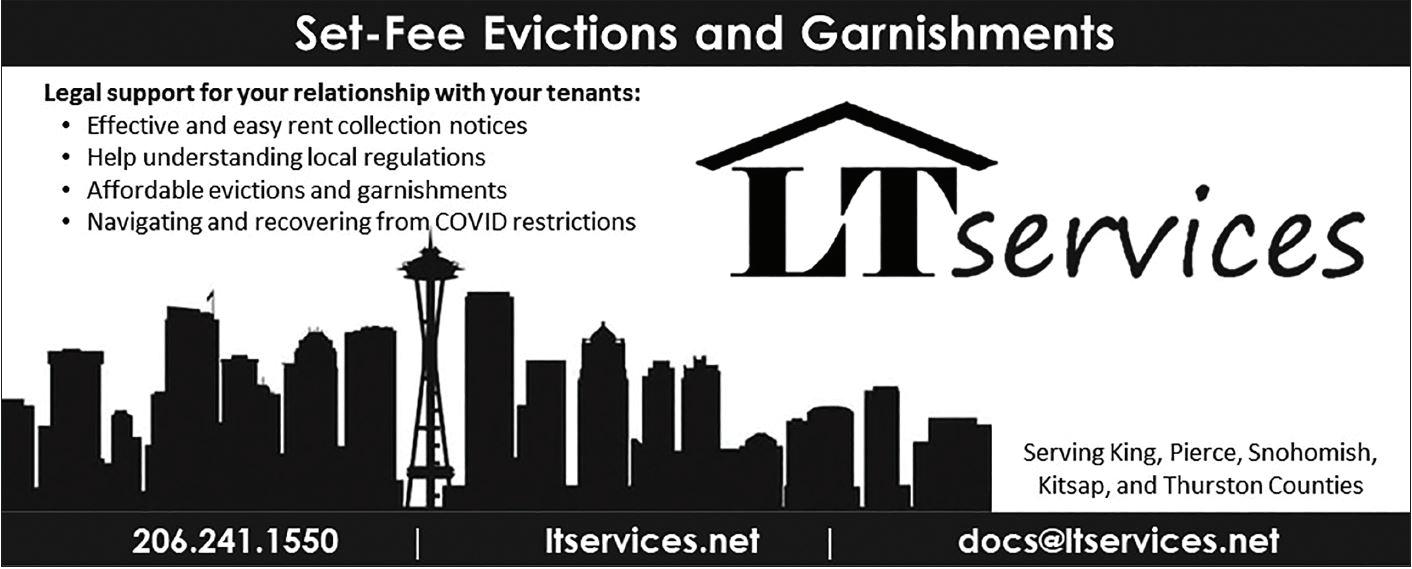

Capital gains taxes are applied to the taxable gain based on the tax rate determined by your income and filing status, and the bill can be significant. There are four property tax categories: federal capital gains taxes, state and local tax, depreciation recapture, and net investment tax – which can overlap one another.
The federal capital gain tax and state taxes are calculated at the investor's tax rate on the taxable capital gain (i.e. appreciation). In our example above, a California property owner with a taxable gain of $2,200,000 would owe 20% in federal capital gains tax and 13.3% in state capital gains tax, amounting to $732,600 in tax. Individuals with significant investment and rental income may also have an additional 3.8% net investment tax—included as part of the Affordable Care Act—added on top of the capital gains rate. This brings the total capital gains bill in California to 37.1% or $816,200 in the example above. This example is unique to properties and taxpayers located in California, which has the country's highest tax rate paid on capital gains.
In addition to capital gains taxes, investors will also pay depreciation recapture. Investors take a depreciation deduction on their annual taxes to offset rental income. The depreciation deduction not only decreases the investor's annual tax liability but also decreases the remaining tax basis for the property. Once you sell the asset for a profit, you must pay back those deductions. This is depreciation recapture. The tax rate on depreciation recapture is a flat rate of 25% at the Federal level, can also include up to 13.3% state income tax, and also be subject to net investment income tax for an additional 3.8%. While capital gains tax is based on the taxable gain, depreciation recapture is calculated based on the accumulated depreciation during the investor's ownership. Based on $750,000 of accumulated depreciation, the depreciation recapture tax in this scenario could be as high as $315,750 or 42.1%.
A 1031 Exchange can be an excellent tool to defer capital gains, depreciation recapture, and net investment income taxes otherwise due from the sale of investment real estate, but they can also be complicated transactions. While 1031 Exchanges are flexible in the number of strategies that can be implemented, the rules put forward by the IRS are not flexible. Failure to adhere to IRS rules can result in either a failed Exchange, in which the entire tax liability is due or a Partial Exchange, in which a portion of the tax liability is due (generally the most expensive portion). Prior to the sale of investment property, investors considering an exchange should become familiar with how 1031 Exchanges work and the following primary rules:

• The Exchange must be set up before a sale occurs
• The Exchange must be for like-kind property
• The Exchange replacement property must be of equal or greater value
• The property owner must pay capital gains and/or depreciation recapture tax on "boot"
• The taxpayer that sold and acquired the Exchange property must be the same
• The Exchanger has 45 days following the sale to identify replacement properties
• The Exchanger has 180 days following the sale to complete the Exchange
A 1031 Exchange can improve the potential for cash flow and appreciation by allowing all of the proceeds to be reinvested. In our example, the investor's total tax liability would be $1,131,950. If the post-tax proceeds of $2,118,050 were reinvested and earned a 5% return, this would generate $105,903 in annual income. However, by performing a 1031 Exchange, the investor would have $3,250,000 to reinvest. At the same return of 5%, the exchange proceeds would generate an annual cash flow of $162,500. The difference in cash flow potential of over $56,500 represents one of the primary benefits of 1031 Exchanges – the ability to keep all your equity working for you to generate income and appreciation.
If you plan to sell your investment property and want to understand your tax deferral options, contact Real Estate Transition Solutions to speak with a licensed 1031 Exchange Advisor. We offer complimentary consultations that can be done over the phone, via video conference, or in person at one of our offices. To schedule your consultation, call 206-502-4862 or visit us at www. re-transition.com/rhawa.
Chief Exchange Strategist, Austin Bowlin, CPA, leads Real Estate Transition Solutions' (RETS) team of licensed 1031 Exchange advisors & analysts and provides consultation on tax liability, deferral strategies, legal entity structuring, co-ownership arrangements, 1031 replacement property options, and Delaware Statutory Trust investments. RETS is a consulting firm specializing in tax-deferred 1031
Exchange strategies and Delaware Statutory Trust investment property. For over 26 years, RETS has helped investment property owners perform successful 1031 Exchanges by developing and implementing well-planned, tax-efficient transition plans carefully designed to meet their objectives. Our team of licensed 1031 Exchange Advisors will guide you through the entire process, including help selecting and acquiring passive management replacement properties best suited to meet your objectives. To learn more about Real Estate Transition Solutions, call (206) 502-4862 or visit us at re-transition.com/rhawa.
The information herein has been prepared for educational purposes only and does not constitute an offer to purchase or sell securitized real estate investments. Such offers are only made through the sponsor's Private Placement Memorandum (PPM), which is solely available to accredited investors and accredited entities. Case studies and examples are for illustrative purposes and are not representative of future results. There are risks associated with investing in real estate properties, including, but not limited to, loss of entire investment principal, declining market values, tenant vacancies, and illiquidity. Because investor situations and objectives vary, this information is not intended to indicate suitability for any particular investor. This material is not to be interpreted as tax or legal advice. Please speak with your own tax and legal advisors for advice/guidance regarding your situation. DST 1031 properties are only available to accredited investors (generally described as having a net worth of over $1 million exclusive of primary residence) and accredited entities only. If you are unsure if you are an accredited investor and/or an accredited entity, please verify with your CPA and Attorney. Securities are offered through Aurora Securities, Inc. (ASI), member FINRA/SIPC. Advisory services are offered through Secure Asset Management, LLC (SAM), a registered investment advisor. ASI and SAM are affiliated companies. Real Estate Transition Solutions (RETS) is independent of ASI and SAM.
* Potential cash flows/returns/appreciation are not guaranteed and could be lower than anticipated. Source: IRS.gov
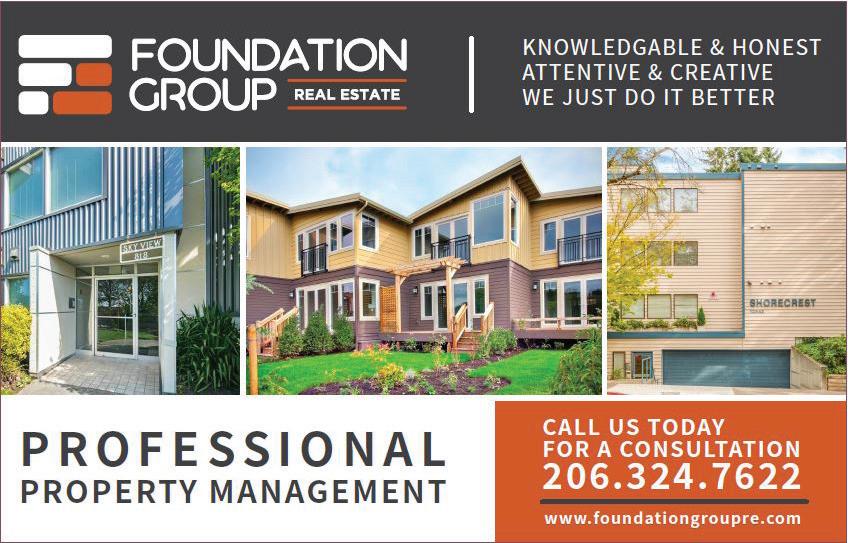

Chester Baldwin | RHAWA Lobbyist
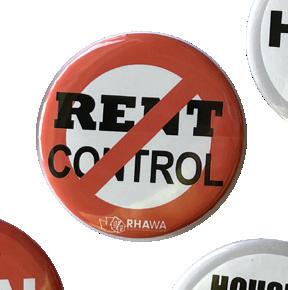
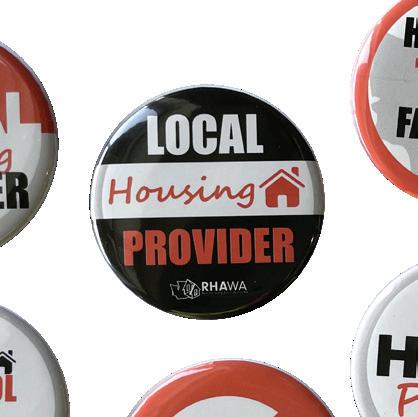


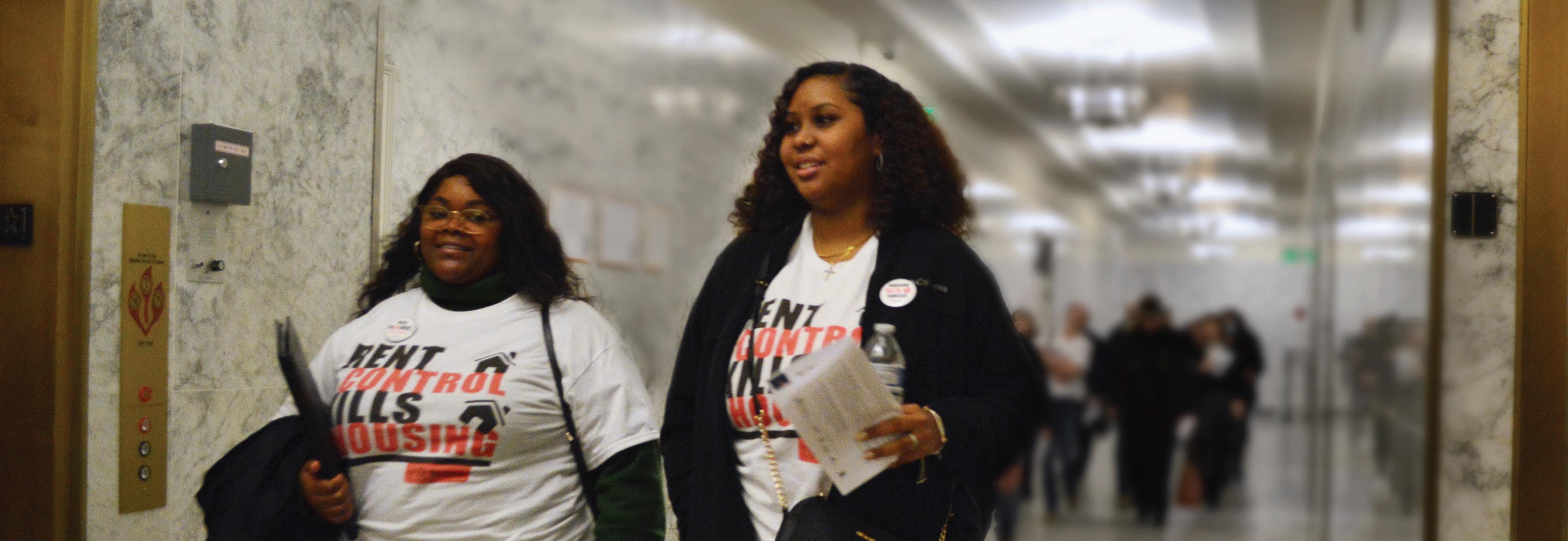
THANK
As the Legislative session in Olympia nears the policy committee cutoff on February 17 the priorities for both caucuses start to become clearer, and we have a better idea of what we are facing. With six rent control bills already introduced in Olympia (HB 1388, HB 1389/SB 5435, HB 1625/SB 5615, & SB 5697), the Rental Housing Association of Washington has been working double-time to educate lawmakers about the dangers of rent control. WA state is short nearly 800,000 housing units already and will be short more than a million units by 2044 according to the Department of Commerce. This is why the Rental Housing Association of Washington and our partners are supporting a host of bills that will lead to more housing creation.
Thank you for Coming to Olympia – Your Amazing Turnout Is Making the Difference
Thank you to everyone who has come to Olympia this legislative session, you have made a huge difference with your presence and your hard work educating lawmakers about our issues. This past week we had the RHAC Legislative Olympia Day and many of our wonderful members journeyed to Olympia to have their voices heard and we made a difference with lawmakers.
We are also very grateful to our many housing providers that came to the Rent Control hearings in Olympia on Tuesday, January 24 to fight the two rent control bills, House Bills 1388 and 1389. Your presence enabled us to have an incredible hearing and connect with lawmakers Opposing Rent Control. We had an amazing hearing, and it is YOUR time and participation that is making the critical difference for us in this year's battle against rent control!
We had well over 125 people join us on January 24 and we filled the hearing room and needed two additional overflow rooms for our housing providers! The tenant advocates were visibly surprised and not pleased! It was also great to see and hear the number of other industry association representatives, who came to speak against rent control, such as Commercial Real Estate Development (NAIOP), Community Bankers of WA, the WA Realtors, WA Business Properties Association, and Assoc of WA Businesses. That of course was in addition to all of our Rental Housing Association Coalition members including RHAWA, WLA, MHCW, WMFHA, and NARPM, the YLA brought members from Eastern WA!

The only problem with having so many wonderful housing providers join us in Olympia was that there wasn’t enough time for everyone’s voice to be heard in the hearing, but that is okay because the Chair and Committee could not ignore the number of us in attendance and in Opposition. Great job coming to Olympia and changing the narrative.
Included in our group photo are our Lawmakers from the House Housing Committee who also oppose rent control including newly elected Rep. Spencer Hutchins (District 26, Gig Harbor, and peninsula); Rep. Andrew Barkis (District 2, Pierce County and Yelm), Rep April Connors (District 8, Tri-Cities area), and Ranking member Mark Klicker (Distict16, Southeast WA) was the icing on Tuesday’s victory cake!
HB 1388 – Rent Control
HB 1388 applies to both residential housing and manufactured home communities, the bill prohibits a landlord from increasing rent more than the rate of inflation (CPI-U) or 3%, whichever is greater, up to a maximum or 7% above existing rent if the rent increase: (1) Is not justified by costs necessary to maintain the dwelling unit; (2) Is substantially likely to lead to the displacement of the tenant; or (3) Is used to avoid other tenant protections. The bill’s rent increase provisions do not apply to: (1) Dwelling units that are less than 10 years old; or (2) Tenancies for which the landlord is required to reduce rent to 30% or less of the tenant's income because of a federal, state, or
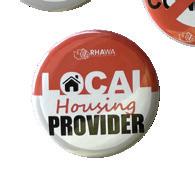
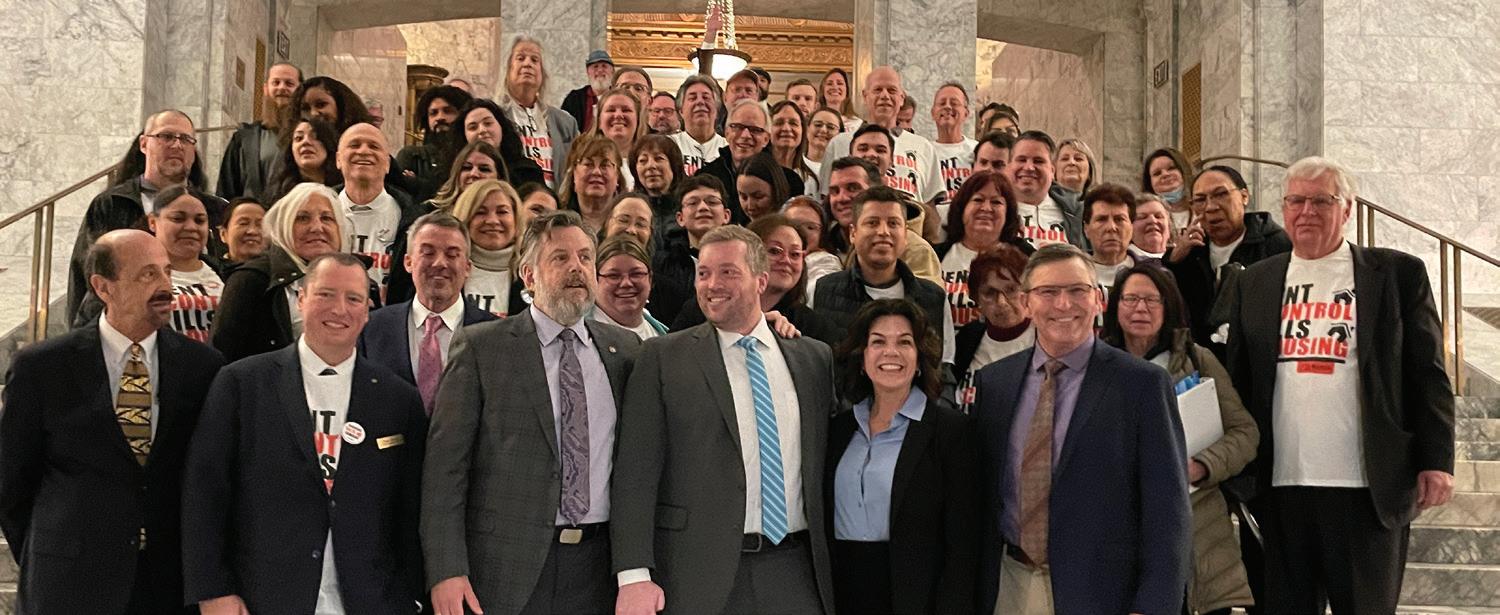
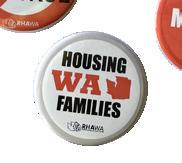





local program or subsidy. The bill requires Commerce to calculate and publish the maximum annual rent increase percentage on September 30, 2023, and on each following September 30th.
The bill creates a private cause of action for a tenant to recover actual damages, punitive damages equal to 3 months' rent and fees, and reasonable attorneys' fees and costs and provides that a violation of the RLTA or MHLTA is a violation of the Consumer Protection Act. The bill also prohibits charging a higher rent or including terms of payment or other material conditions in a rental agreement that are more burdensome to a tenant for a month-to-month rental agreement than for a longer-term rental agreement.
Additionally, the bill authorizes the Attorney General (AG) to investigate practices that violate this section. The AG may issue a cease-and-desist letter to prevent predatory practices that violate this section. If the recipient does not comply within five calendar days, the AG may file an action in court with a civil penalty up to $10,000 per occurrence and may imposes a civil penalty of no more than $25,000 per violation. When investigating, the AG may consider, in addition to any other relevant information: (1) The condition of the

dwelling unit, including outstanding repair issues, maintenance costs other than for upgrades, property taxes, etc.; (2) Whether a rent increase was issued to evade protections afforded to tenants; and (3) Whether a rent increase will result in the displacement of the tenant or household.
HB 1389/SB 5435 – Rent Control
HB 1389, like HB 1388, applies to both residential housing and manufactured home communities. The bill prohibits a landlord from increasing the rent more than the CPI-U or 3%, whichever is greater, up to a maximum or 7%. Commerce is required to calculate and publish the maximum annual rent increase percentage. Further, the bill prohibits a landlord from increasing the rent in the first 12 months of a tenancy and defines "Rent increase" to include any new charges added to a rental agreement that were not identified in the initial rental agreement. For example, new parking, utility, or other charges. The bill requires a landlord that increases rent above the limit to include facts supporting the exemption in the written notice of the rent increase. The bill also contains a VERY complicated "banking" process to carry forward the ability to give an increase later if not given in that year. Finally, the bill creates a private cause
of action for a tenant to recover actual damages, punitive damages equal to 3 months' rent, and reasonable attorneys' fees and costs.
HB 1625/SB 5615 – Local Rent Control
HB 1625 removes the State Preemption on Rent Control (RCW 35.21.830) allowing local governments to enact local rent control. The bill would allow every Local Government to create a different local rent control policy; that could mean more than 400 different local rent control policies across WA State. There is no floor in the bill to what a city could impose under local rent control including denying any increase whatsoever to housing providers. Allowing local jurisdictions to enact their own local version of rent control would be disastrous for many housing providers. The desperate need for “Middle Housing” solutions shows that cities have not found solutions for housing, why should we trust them with local rent control?
SB 5697 – Mobile Home Park Rent Control
SB 5697 only applies to Manufactured Housing, and it has added the UTC as the governing "rent control board" instead of the "Department of Commerce." The bill purports to authorize the utilities and transportation com-
mission (UTC) to regulate the rates and services of all persons engaging in the business of acting as a landlord for a manufactured home community/ mobile home park. The bill caps annual rent increases as follows: No increase during first 12 months of tenancy; At any time after the first year, increase may not exceed an amount greater than the rate of inflation as measured by the consumer price index.
Additionally, the bill contains vacancy control in limited situations where the tenancy is terminated by the landlord [landlord terminating a tenancy may not set rent for the next tenancy in an amount greater than the consumer price index]. The legislation expressly removes current law that describes leases having a term of 2 years or more; the intent must be to impair all such existing leases and prohibit new ones that do not conform to this bill.
This bill is essentially HB 1389, except WORSE. It applies only to Manufactured Housing Communities (MHC) and it has added the UTC as the governing "rent control board" instead of the "department of commerce." HB 1389 also contains the banked capacity
Chloe Moser | Event Coordinator | cmoser@RHAwa.org | (206) 905-0600

The absolute best way to send your message out to our members is by event sponsorship! RHAWA has over 5,000 members and supporters will be invited to the events yearround. We are seeking sponsorships for the 2023 events and are counting on your support to help make them a success. We have 5 in-person events
a year and have three to four different sponsorship packages available per event. One of the most popular items we offer is promotional email messages that are sent to our member base, giving sponsors over 50,000+ impressions for the campaign. All of the events will also be marketed in our CURRENT newspaper (with a distribution of over 7,000 readers) and bi-weekly Connections email for an additional 15,00020,000 impressions. There are a ton of different offerings we have available –there is always an opportunity to sponsor, no matter what your budget is.
Usually reserved for our higher tiered sponsorship levels, our highest value offer is a black and white ad for your company in our newspaper, CURRENT; that is over $600 value! We also offer tickets to events at every level as well as other online marketing tools.
This year for the first time ever, we are offering a Premier Level, Annual Sponsor. This is a one-time contribution for the entire year, and you will be recognized at every event. One lucky company will have the honor of a vendor profile article written about them
in the CURRENT, an ad on our events page that will remain there year-round, signage at the event, exhibitor booths when appropriate, podium time prior to the keynote speaker, and much more.
The live events for 2023 are: the Spring Workshop Tradeshow, the Live Legal Event, the Membership Appreciation Day, the Annual Business Meeting, and the Holiday Gala.
To learn more about sponsor benefits or to secure yours today, contact Luke Brown at lbrown@RHAwa.org.

We encourage you to consider the vendors found within these listings for your rental business needs. When seeking competitive bids, be sure to mention your RHAWA membership as many offer member discounts. RHAWA does not specifically endorse any business listed herein. References are always recommended. If you would like to submit a customer testimonial for our records, please submit to publications@RHAwa.org. Please note that changes made to a vendor member profile will not be reflected in the CURRENT Vendor Listings unless the change is also sent to publications@RHAwa.org.
Brink & Sadler (253) 582-4700 | brinkandsadler.com
Hutchinson & Walter, PLLC (425) 455-1620 | hutchcpa.com
Pacific Publishing Co. | Print + Internet (206) 461-1322 pacificpublishingcompany.com
Seattle Rental Group | Property Management (206)315-4628 | www.seattlerentalgroup.com
(360) 529-7567 |
Donald B. Kronenberg (206) 877-3191
Greenwood
(206) 783-2900 |
Brink Property Management
Dean Foggitt (425) 458-4848 | brinkpm.com
Access Evictions
Travis Eller (425) 641-8010 | accessevictions.com
Christopher T. Benis, Attorney at Law First Avenue Law Group, PLLC
Vendor of the Year 2006 (206) 447-1900 | firstavenuelaw.com
Demco Law Firm, P.S. (206) 203-6000 | demcolaw.com
Dimension Law Group PLLC
Synthia Melton (206) 973-3500 | dimensionlaw.com
Flynn and Associates, PLLC
Sean Flynn (206) 330-0608 | theflynnfirm.com
Glasson Legal (206) 627-0528 | glassonlegal.com
Gourley Law Group / The Exchange Connection (360) 568-5065 | gourleylawgroup.com
Holmquist & Gardiner, PLLC (206) 438-9083 | lawhg.net
Jeffery Bennett (503) 255-8795
Law Office Of Shaun Watchie Perry (206)729-7442 | swp-law.com
Ledger Square Law
(253) 327-1701 | ledgersquarelaw.com
Ling & Liang PLLC
(206)462-2884 | ling-liang.com
LT Services (206) 241-1550 | ltservices.net
Loeffler Law Group, PLLC (206) 443-8678 | loefflerlawgroup.com
Maxwell Glasson (206) 627-0528 | loefflerlawgroup.com
Micheal D Mclaughlin, Attorney at Law (253) 686-9786
Reed Longyear Malnati & Ahrens, PLLC (206)624-6271 | www.reedlongyearlaw.com
Seattle Real Estate Law Group (206) 623-4846 | seattlerealestatelawgroup.com
Eastside Funding (425) 230-0000 | eastsidefunding.com
First Federal Savings and Loan (206) 586-1701 | ourfirstfed.com
First Financial Northwest Bank
Tom Jarzynka (425) 264-2757 | ffnwb.com
Homebridge Financial (206) 915-3742 | homebridge.com
Luther Burbank Savings Bank
Tiana Jackson: (425) 739-0023 lutherburbanksavings.com
Pacific Crest Savings Bank
Scott Gibson (425) 670-9600 | (800) 335-4126 paccrest.com
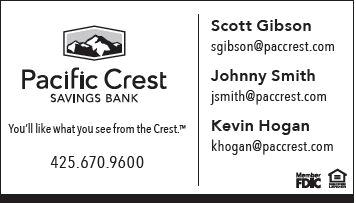
Umpqua Bank | Multifamily Lending
Matt Couch (425) 602-1250 | umpquacrelending.com
Washington Federal Vendor of the Year | 2015
Tim Marymee: (206) 777-8213 | (800) 324-9375 washingtonfederal.com BATHTUB + SHOWER RENOVATION
Fischer Restoration (888) 345-2532 | fischerrestore.com
Flippers Warehouse (206) 656-3222 | flipperswarehouse.com
Tub Cove Inc. New Tubs, Surrounds and Bathroom Plumbing (206) 522-1711 | tubcove.com
NWK9 Bed Bug Detectives (206) 801-3522 | nwk9bedbugdetectives.com
Ultrasonic Mini-Blind Cleaning + Repair (425) 771-7799 | shineablind.net

+1 Construction (206) 313-6587 | plusoneconstruction.com
Bellan Group, LLC
Susan Bellan (206) 383-0102 | bellan.com
Construction Expeditors, LLC (206) 595-8852 | (877) 644-1700 constructionexpeditors.com

Fischer Restoration (888) 345-2532 | fischerrestore.com
Flippers Warehouse (206) 656-3222 | flipperswarehouse.com
Haynes Contracting LLC (253) 335-7905 | haynescontractingllc.com
Interland Design
Jake Cervilla (425) 290-9639 | interlanddesign.com
Kanso Homes, Inc. (206) 278-3403 | kansohomes.com
Maintco (425) 822-5505 | maintcogc.com
Masonry Restoration Consulting (425) 344-3893 masonryrestorationconsulting.com

Next Level Property Maintenance (206) 922-8119 | nxtlevelpm.com
Pro Realty Options, Inc. (425) 745-2400 | prorealtyoptions.com
Rife Masonry
Chad Rife: (206) 696-6998 | rifemasonry.com
T.E. Kelly Company, LLC
Tim Kelly: (206) 240-1950
The Wall Doctor, Inc.
Gary Borracchini (425) 822-8121 | thewalldoctor.com
Top-Rung Construction LLC
Gary Gilmer (253) 893-1101 | fieldsroofservice.com
Envirotest | Mold & Air Quality Analysis Donald B. Kronenberg (206) 877-3191 | seattlemoldandairquality.com
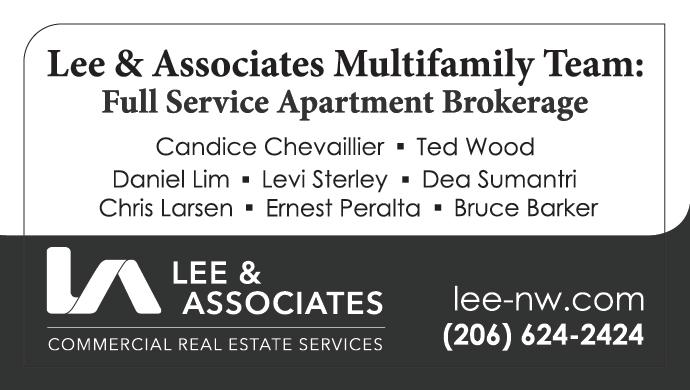

Reinhart Electric & Service (425) 251-5201 reinhartelectric.net
T.E. Kelly Company LLC Tim Kelly: (206) 240-1950 CRIMINAL BACKGROUND CHECKS
Rental Housing Association of Washington Chartrice Young (206) 283-0816 | RHAwa.org
Dunn Lumber | Doors, Windows & Lumber (206) 632-2129 | dunnlum.com
Affinity Real Estate Management (206) 812-9155 affinityrem.com Pacific Crest Real Estate (206) 812-9155 pacificcrestre.com
SRC Windows (253) 565-2488 | srcwindows.com
Best Plumbing Group (206) 633-1700 | (425) 771-1114 bestplumbing.com Day & Nite Plumbing & Heating Inc.
Vendor of the Year | 2020 (425) 775-6464 (800) 972-7000
dayandnite.net
Fischer Plumbing, Inc. (206) 783-4129 | fischerplumbing.com
The Pipe Guys (253) 537-2830 | pipeguys.com
DRYER VENT + DUCT CLEANING
The Chimney Specialists, Inc. | Dryer Vent Only Seattle: (206) 782-0151 | (888) 979-3377
So. King Co.: (253) 833-0144 | (888) 979-3377
Pierce Co.: (253) 475-0399 | (888) 979-3377
thechimneyspecialists.com
VentMasters (206) 362-5190 | ventmasters.net DRYWALL
313-6587 | plusoneconstruction.com
A&A Electric (206) 212-1888 | anaelectric.com
ABC Towing, Inc. Seattle: (206) 682-2869
Tukwila: (206) 767-4024
abc4atow.com
Bellan Group, LLC
Susan Bellan (206) 383-0102 | bellan.com
Bravo Roofing, Inc.
GoldStar Vendor + Vendor of the Year | 2014
John Paust, Estimator: (206) 948-5280 (253) 335-4825 | (360) 886-2193
john@bravoroofs.com
bravoroofs.com
Construction Expeditors, LLC (206) 595-8852 | constructionexpeditors.com
Diamond Roofers, LLP
Flat & Low Slope (206) 202-7770 | diamondroofers.com
ER Flooring (360) 402-9566 | erflooring.com
First Choice Remodeling, Inc. (253) 846-9000 | firstchoiceremodelinginc.com
Global Paving LLC (253) 286-7943 | globalpavingllc.com
Masonry Restoration Consulting (425) 344-3893
masonryrestorationconsulting.com
Maintco (425) 822-5505 | maintcogc.com
Pioneer Masonry Restoration Co. (206) 782-4331 | pioneermasonry.com
Dimension Law Group PLLC
Synthia Melton (206) 973-3500 | dimensionlaw.com
Flynn and Associates, PLLC
Sean Flynn (206) 330-0608 | theflynnfirm.com
Olympic Estate Group, LLC
G.A. “Jeri” Schuhmann (206) 799-0544 | OlympicWealthStrategies.com
Access Evictions
Travis Eller, Attorney at Law (425) 641-8010 | accessevictions.com
Demco Law Firm, P.S. (206) 203-6000 | demcolaw.com
Glasson Legal (206) 627-0528 | glassonlegal.com
LT Services, Inc. (206) 241-1550 | ltservices.net
Loeffler Law Group, PLLC (206) 443-8678 | loefflerlawgroup.com
Maxwell Glasson (206) 627-0528 | loefflerlawgroup.com
Axis
The Wall Doctor, Inc.
Gary Borracchini (425) 822-8121 | thewalldoctor.com
Rental Housing Association of Washington Denise Myers (206) 283-0816 | RHAwa.org ELECTRICAL MAINTENANCE + REPAIR
A&A Electric (206) 212-1888 | anaelectric.com Alpine Ductless, LLC (360) 529-7567 | alpineductless.com Capstone Solar (206) 580-3448 | capstonesolar.com
Electric & Service

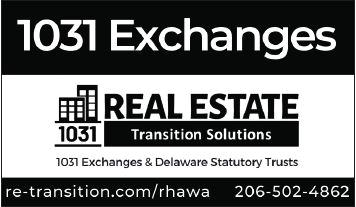



Colliers International
GoldStar Vendor + Vendor of the Year | 2018
Tim McKay: (206) 223-5586
CPX LLC
(866) 405-1435 | cpxone.com
Dan Chhan: (206) 223-1265
Joe Levin: (206) 223-5583
Sam Wayne: (206) 515-4498
Brittany Rondello: (206) 515-4495
colliers.com
Flynn Family Lending
Matt Flynn (425) 221-8660 | flynnfamilylending.com
Havium. Inc (888) 642-8486 | havium.com
Kidder Mathews
Dylan Simon: (206) 414-8575
Jerrid Anderson: (206) 499-8191
DylanSimon.com
Luther Burbank Savings Bank
Tiana Jackson: (425) 739-0023 lutherburbanksavings.com
McTaggart Real Estate (206) 322-9495 | darcoapts.com
Paragon Real Estate Advisors, Inc.
Vendor of the Year | 2016 (206) 623-8880 | (800) 643-9871
paragonrea.com
Peak Mortgage Partners
Dave Eden (206) 660-3014 | peakmp.com
Sound Reatly Group
Charles Burnett, CCIM (206) 931-6036 | soundmultifamily.com
Umpqua Bank | Multifamily Lending
Matt Couch (425) 602-1250 umpquacrelending.com
Wilson Property Management, Inc. Gary Wilson, CPM (425) 453-0089 | wilsonmanagementinc.com
Homebridge Financial (206) 915-3742 | homebridge.com
MASONRY SERVICES
Pioneer Masonry Restoration Co. (206) 782-4331 | pioneermasonry.com
Matt Flynn (425) 221-8660 | flynnfamilylending.com
Kidder Matthews Simon and Anderson Team (206) 747-4725 | dylansimon.com
Luther Burbank Savings Bank
Tiana Jackson: (425) 739-0023 lutherburbanksavings.com
Jackson
Pacific Crest Savings Bank
Todd M. Hull | Scott Gibson (425) 670-9624 | (800) 335-4126 pacificcrestbank.com
Peak Mortgage Partners
Dave Eden (206) 660-3014 | peakmp.com
Sound Community Bank (206) 448-0884 x202 | soundcb.com
Umpqua Bank | Multifamily Lending
Matt Couch (425) 602-1250 | umpquacrelending.com
Washington Federal Vendor of the Year | 2015
Tim Marymee (206) 777-8213 | (800) 324-9375
washingtonfederal.com
Tacoma Public Utilities Power: (253) 502-8600
Water: (253) 502-8723
TacomaPowerRebates.com/multifamily
Pacific Northwest Locksmith (206) 531-0411 | pnwlocksmith.com
Dunn Lumber (206) 632-2129 | (800) 248-3866 dunnlum.com
First Choice Remodeling, Inc. (253) 846-9000 | firstchoiceremodelinginc.com
Multifamily Elites (425) 698-1631 | multifamilyelites.com
Pro Realty Options, Inc. (425) 745-2400 | prorealtyoptions.com
Real Property Management Today (253) 426-1730 | rpmtoday.com
RentalRiff (541) 600-3200 | rentalriff.com
MASONRY SERVICES
Rife Masonry Chad Rife: (206) 696-6998 | rifemasonry.com
Masonry Restoration Consulting (425) 344-3893 masonryrestorationconsulting.com

METER + BILLING SERVICES
Guardian Water & Power
Chris Apostolos (206) 271-6913 | (877) 291-3141 x139 guardianwp.com
Submeter Solutions, Inc.
Jeff Lowry: (425) 228-6831 (888) 64-METER (63837) | submetersolutions.com
MOLD | MOLD INSPECTIONS
Envirotest | Mold, Air Quality Analysis, Inspections
Donald B. Kronenberg (206) 877-3191 | seattlemoldandairquality.com
ON-SITE LAUNDRY SERVICES
Hainsworth Laundry Jason Hainsworth (509) 534-8942 | hainsworth.biz
PAINTING | PAINT
Extreme Steam Carpet Cleaning (425) 330-9328 | extremesteamcc.com
Interland Design
Jake Cervilla (425) 290-9639 | interlanddesign.com
Ohlsen's Property Renewal (206) 228-2123 | propertyrenewals.com
PEST INSPECTIONS
NWK9 Bed Bug Detectives (206) 801-3522 | nwk9bedbugdetectives.com
Straight Street Building / Home Inspection
John Leon Gonzalez (206) 999-1234 | hi@homeinspect.ws
PIPE RESTORATION
Best Plumbing Group (206) 633-1700 | (425) 771-1114
Fischer Plumbing, Inc. (206) 783-4129 | fischerplumbing.com
The Pipe Guys (253) 537-2830 | pipeguys.com
Tub Cove Inc. One-piece one-of-a-kind bath walls (206) 522-1711 | tubcove.com
PLUMBING
Best Plumbing Group (206) 633-1700 | (425) 771-1114 bestplumbing.com
Day & Nite Plumbing & Heating Inc.
Vendor of the Year | 2020 (425) 775-6464 | (800) 972-7000 dayandnite.net
Fischer Plumbing, Inc. (206) 783-4129 | fischerplumbing.com POOL LEAK DETECTION
American
Brink Property Management
Dean Foggitt (425) 458-4848 | brinkpm.com
Cadence Real Estate (206)258-4871 | www.cadencere.com
Capstone Commercial Real Estate Advisors
John Downing (206) 324-9427 | capstonerea.com
Champions Real Estate Services (425) 744-5550 | nwchampions.com
Cornell & Associates Inc (206)329-0085 | www.cornellandassociates.com
Dave Poletti & Associates (206) 286-1100 | davepoletti.com
Dobler Management Company Inc. (253) 475-2405 | doblermanagement.com
Elita Living Real Estate LLC
Erica Vincent (206) 323-0771 | elitaliving.com
Emerald Heights Property Management
Ryan Dosch (206) 457-2475 emeraldheightspm.com
First Comercial Properties NW. (206) 985-7275 | fcpnw.com
Foundation Group, LLC (206) 324-7622 | foundationgroupre.com
Icon Real Estate Services Inc.
Jeremiah Roberson (425) 633-3330 | www.iconre.org
Jean Vel Dyke Properties, LLC (206) 725-3103 veldyke.com
Jevons Property Management
Enrique Jevons (206) 880-7935 | jevonsproperties.com
Krishna Realty (425) 209-0055 | krishna-realty.com
Lexington Asset Management (310) 650-3343
Longley Property Management Inc.
Venita Longley (206) 937-3522 | longleypm.com
Madeson Management LLC
Melissa Melia (206) 673-4282 | madesonmanagement.com
Madrona Real Estate Services, LLC
Bradford Augustine (206) 538-2950 | MadronaRealEstate.com
Maple Leaf Management LLC
Michelle Bannister (206) 850-8095 | mapleleafmgt.com
Marathon Properties
Jeff O’Hare (425) 745-9107 | marathonpropmgmt.com
Multifamily Elites (425) 698-1631 | multifamilyelites.com
Nathaly Burnett Property Management (253) 732-9535 | beyondseattle.com
Next Brick Property Management (425) 372-7582
Niche Realty Associates LLC (206) 851-4694 | nichrealtyassoc.com
Northfield Properties Inc. (425) 304-1250 | (425) 304-1250
North Pacific Property Management
Joshua Fant (206) 781-0186 | (800) 332-1032
northpacificpropertymanagement.com
Pacific Crest Real Estate (206) 812-9155 | pacificcrestre.com
Park 52 Property Management
Paul Jakeman (253) 473-5200 | park52.com
People’s Real Estate, Inc.
Lisa Brannon (425) 442-9941 | peoplespm.com
Phillips Real Estate, LLC (206)22-8600 | philipsre.com
Pilot Ventures LLC | Property Management (206) 566-6600 | pilotnw.com
Rental Housing Association of Washington (206) 283-0816 | RHAwa.org/RMAP
Windermere Property Management / WPM South, LLC
Ed Verdi (253) 638-9811 | wpmsouth.com
WPI Real Estate Services, Inc. (206) 522-8172 | wpirealestate.com
Yardi
Kelly Krier (805) 699-2040 | yardi.com
RECYCLING + GARBAGE
Prospector Property Management (206) 508-6366
prospectorpropertymanagement.com
Real Estate Gladiators (425)260-3121 | www.realestategladiators.com
Real Estate Investment Services (REIS)
Lakewood: (253) 207-5871
Seattle: (206) 319-5981
REISinvest.com
Real Property Management Today (253) 426-1730 | rpmtoday.com
Redside Partners, LLC
Craig Swanson (206) 323-1771 | redsidepartners.com
Rentals Northwest
Richard Wilber (253) 581-8616
Renters Marketplace
Larry Cutting (425) 277-1500 | rentersmarketplace.com
Seattle's Property Management (206) 856-6000 | seattlespropertymanagement.com
Seattle Rental Group Property Management (206)315-4628 | www.seattlerentalgroup.com
SJA Property Management (425) 658-1920 | sjapropertymanagement.com
SJC Management Group
Jason Clifford (253) 863-8117 | sjcmanagement.com
Spartan Agency, LLC (253) 863-6122 spartanagency.com
SUHRCO Residential Properties (425) 455-0900 | (206) 243-5507
suhrco.com
The Paris Group NW (206) 466-4937 | theparisgroupnw.com
TQ Handyman LLC
Trevor Rose: (206) 222-5129
trevor@tqhandyman.com
T-Square Properties | Real Estate Brokers (425) 485-1800 | www.tsquaremanagement.com
Weber & Associates Property Management (425) 745-5838
Westlake Associates (206) 505-9400 | westlakeassociates.com
Wilson Property Management, Inc.
Gary Wilson CPM (425) 453-0089
wilsonmanagementinc.com
Windermere Property Management
/ Lori Gill & Associates (425) 455-5515 | wpmnorthwest.com
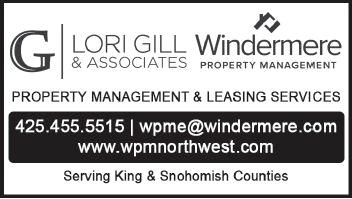
Windermere Property Management
/ JMW Group (206) 621-2037 | windermere-pm.com
Junk Busters-Big Haul (360) 390-2014 | junkbustersllc.com
BricksFolios Real Estate Solutions
Jyotsna (Jo) Dixit (425) 503-1225 | brickfolios.com
Capstone Commercial Real Estate Advisors
John Downing (206) 324-9427 | capstonerea.com
Champions Real Estate Services (425) 744-5550 | nwchampions.com
Colliers International (206) 223-1428 | colliers.com/seattle
Cornell & Associates Inc (206)329-0085 | www.cornellandassociates.com
Dave Poletti & Associates (206) 286-1100 | davepoletti.com
DVF Legacy Investments (206) 650-6113 | pugetsoundinvesting.com
Elita Living Real Estate LLC
Erica Vincent (206) 323-0771 | elitaliving.com
Foundation Group, LLC (206) 324-7622 | foundationgroupre.com
Havium. Inc (888) 642-8486 | havium.com
HFO Investment Real Estate (971) 717-6337 | hfore.com
Jean Vel Dyke Properties, LLC (206) 725-3103 | veldyke.com
Kay Properties & Investments
Dwight Kay (855) 899-4597 | kpi1031.com
Kidder Mathews
Dylan Simon: (206) 414-8575
Jerrid Anderson: (206) 499-8191
DylanSimon.com
Krishna Realty (425) 209-0055 | krishna-realty.com
Leading Edge Property Management (425) 405-2358 | edgehomerentals.com
Lee & Associates
Multifamily Team
Candice Chevaillier (206) 284-1000 | lee-nw.com

Madrona Real Estate
Bradford Augustine (206) 538-2950 MadronaRealEstate.com
McTaggart Real Estate (206) 322-9495 | darcoapts.com
Next Brick Property Management (425) 372-7582
Niche Realty Associates LLC (206) 851-4694 | nichrealtyassoc.com
North Pacific Property Management (206) 781-0186 | (800) 332-1032 northpacificpropertymanagement.com
Paragon Real Estate Advisors, Inc.
Vendor of the Year | 2016 (206) 623-8880 | (800) 643-9871 paragonrea.com

Park 52 Property Management
Paul Jakeman (253) 473-5200 | park52.com
People’s Real Estate, Inc. (425) 442-9941 | peoplespm.com
Phillips Real Estate, LLC (206) 622-8600 | phillipsre.com
Prime Metropolis Properties, Inc. (425) 688-3003 | pmp1988.com
Real Estate Gladiators (425)260-3121 | www.realestategladiators.com
Real Estate Investment Services (REIS) Lakewood: (253) 207-5871
Seattle: (206) 319-5981
REISinvest.com
Seattle Land Broker Inc. (206) 973-3022 | seattlelandbroker.com
SJA Property Management (425) 658-1920 | sjapropertymanagement.com
Sound Reatly Group
Charles Burnett, CCIM (206) 931-6036 | soundmultifamily.com
SUHRCO Residential Properties (425) 455-0900 | (206) 243-5507 suhrco.com
Tecton Corporation (206) 448-4100 | tecton.com
The Chang Group (425) 678-2288 | changgroup.com
The Paris Group NW (206) 466-4937 | theparisgroupnw.com
T-Square Properties | Real Estate Brokers (425) 485-1800 www.tsquaremanagement.com
Westlake Associates (206) 505-9400 | westlakeassociates.com
Windermere Property Management / Lori Gill & Associates (425) 455-5515 | wpmnorthwest.com
Windermere Real Estate Commercial
Therasa Alston (206) 650-4777
Windermere Real Estate / East
Buck Hoffman (206) 660-3764 | buckhoffman.com
WPI Real Estate Services, Inc. (206) 522-8172 x105 | wpirealestate.com
HOUSING



Ideal Inspection Services LLC RRIO Certified + Licensed Inspector (206) 930-0264 | idealinspectionservice.com Optimized Inspection Services, LLC Bryan Mize (206) 349-0733 |
Guardian Water & Power
Chris Apostolos (206) 271-6913 | (877) 291-3141 x139 guardianwp.com
Submeter Solutions, Inc. Jeff Lowry: (425) 228-6831 (888) 64-METER (63837) | submetersolutions.com
ABC Towing, Inc. Seattle: (206) 682-2869 Tukwila: (206) 767-4024 abc4atow.com
Bio Clean, Inc. (425) 754-9369 | biocleanwa.com
SERVICES
Conservice (435) 419-4960 conservice.com
Tacoma Public Utilities Power: (253) 502-8600 Water: (253) 502-8723 TacomaPowerRebates.com/multifamily
Pacific Publishing Co. | Print & Internet (206) 461-1322 | pacificpublishingcompany.com
Renters Marketplace Larry Cutting (425) 277-1500 | rentersmarketplace.com
Seattle Public Utilities | Saving Water Partnership (206) 615-1282 | savingwater.org
WATER | FIRE DAMAGE RESTORATION
Fischer Restoration (888) 345-2532 | fischerrestore.com WATER HEATER SALES & SERVICE
Best Plumbing Group (206) 633-1700 | (425) 771-1114 bestplumbing.com
Day & Nite Plumbing & Heating Inc. Vendor of the Year | 2020 (425) 775-6464 | (800) 972-7000 dayandnite.net
Fischer Plumbing, Inc. (206) 783-4129 | fischerplumbing.com
Greenwood True Value Hardware (206) 783-2900 | greenwoodhardware.com
Masonry Restoration Consulting (425) 344-3893 masonryrestorationconsulting.com
Shine a Blind | Blinds On-Site Ultrasonic Mini-Blind Cleaning + Repair (425) 771-7799 | shineablind.net
SRC Windows (253) 565-2488 | (800) 870-2488 srcwindows.com

Tacoma Public Utilities Power: (253) 502-8600 Water: (253) 502-8723
TacomaPowerRebates.com/multifamily
Echo Yard Maintenance (206) 909-6873

idea and full control on sites where an eviction has occurred. HB 1389 actually required the department to calculate the annual increase percentage. The utilities and transportation commission (UTC) does not appear to have that function under SB 5697. Further, HB 1389 provided some illusory rights to recoup capital invested in the property over the preceding 12-month period, but SB 5697 does not allow any such recovery (or pretend to allow it as in HB 1389). We are strongly opposing this bill.
HB 1817/ SB TBD – Housing Gap Vouchers
We have been working on Housing Gap Vouchers for most of this legislative session and just this week we introduced that bill in the House and Senate (Senate version awaiting bill number now). The House bill HB 1817 is scheduled for a hearing in the House Housing Committee on February 14 at 4pm and we will be out in force and need YOU to show our support for this important bill.
Our Housing Gap Vouchers would create rental assistance vouchers in
partnership with the public housing authorities for residents to bridge the gap between their income and their rent, especially helping with rent increases. The bill makes available rental assistance for seniors, low-income families, and members of marginalized communities living in manufactured housing or rental housing in Washington. These vouchers are targeted to 80% AMI and below, adjusted by family size and area and the voucher is good for up to 12 months and allows residents in need to reapply. The voucher amounts are enough to bridge the gap but not paying all of the resident’s monthly rent.
This is a critical priority for us as we need to help lawmakers understand that rents have increased because of many factors and that rent control is not the answer; the answer is providing targeted assistance to those low-income families and seniors who need the assistance.
HB 1628 – Highest State REET Tax in America on Properties Over $5 Million
HB 1628 would create a new tier in the state graduated REET Tax that would be the highest REET Tax in America on sales over $5 million. The REET Tax would be 4% of the selling price that is greater than $5 million, beginning January 1, 2025. The REET Tax shall be split as follows: (1) 30% to the Washington housing trust fund created in RCW 43.185.030; (2) 30% to the apple health and homes account created in RCW 43.330.184; (3) 15% to the developmental disabilities trust ac-
count created in the bill; and (4) 24% to the affordable housing for all account created in RCW 43.185C.190 for operations, maintenance, and service cost for permanent supportive housing as defined in RCW 17 36.70A.030.
Unfortunately, WA is becoming less desirable and less competitive for real estate investment. There are 15 states that do not charge real estate excise or transfer taxes at all. In addition, WA is one of 23 states that also allow a local option real estate excise or transfer tax on top of that. The higher our WA fees, the more likely to drive investment to other states. Multifamily housing and Commercial real estate have taken a lot of financial hits during the pandemic and are still working to recover, the idea of enacting the nation’s highest REET tax would not allow that recovery. With many companies still not back to work in the office, adding this extreme REET tax to commercial properties will only exacerbate that problem. We know that higher taxes and increased administrative burden have proven to consistently drive real estate investment out of the market and likely increase rental prices. Additionally, increased REET Taxes will discourage housing investment and development in Washington State, increasing rents, and worsening our housing crisis. Costs are already increasing for small housing providers; this will create even more burden on these small businesses and will lead to less housing in WA State. We are part of a coalition adamantly opposing this legislation.
=
=
=
= All
1. HB 1388 – Rent Control (R)
2. HB 1389/SB 5435 – Rent Control (R)
3. HB 1625/SB 5615 – Local Rent Control (R)
4. SB 5697 – Manufactured Housing Rent Control (R)
5. HB 1628 – Highest State REET Tax (A)
6. HB 1124 – Rent Control Lite, 1-Way Lease, & Fees (R)
7. SB 5197 – Eviction Processes (R)
8. SB 5335 – Capital Gains (A)
9. HB 1129/SB 5198 – Mobile Home Community Sale (R)
Formal legal advice and review is recommended prior to selection and use of this information. RHAWA does not represent your selection or execution of this information as appropriate for your specific circumstance. The material contained and represented herein, although obtained from reliable sources, is not considered legal advice or to be used as a substitution for legal counsel. Continued from page 4
can help you with this process. We can provide you with a complete and thorough consumer report that will meet your tenant screening needs. The certification can be completed in one day once all the required documents have been submitted. However, it is best not to postpone the Certification process until you have an application in hand and need to process right away; contact us today! (206) 283-0816 or screening@RHAwa.org.
SUPPORT
1. HB 1817/SB 5471 – Permit Reform – (R) + (M)
Housing Creation Bills
2. HB 1611 – Permit Reform – (R)
3. HB 1404/SB 5117 – Reforms to Building Code Council – (A)
4. HB 1252 – Impact Fees – (R)
5. HB 1296/SB 5290 – Permit Streamlining – (A)
6. HB 1026 – Design Review – (R)
7. HB 1298/SB 5258 – Condo Reform – (R)
8. HB 1110/SB 5190 – Missing Middle – (R)
9. HB 1245/ SB 5364 – Lot Splitting – (R)
10. HB 1042 – Existing Building – (A)
11. HB 1351/ SB 5456 – Parking Requirements – (A)
12. HB 1517/ SB 5466 – Transit Oriented Development – (A)

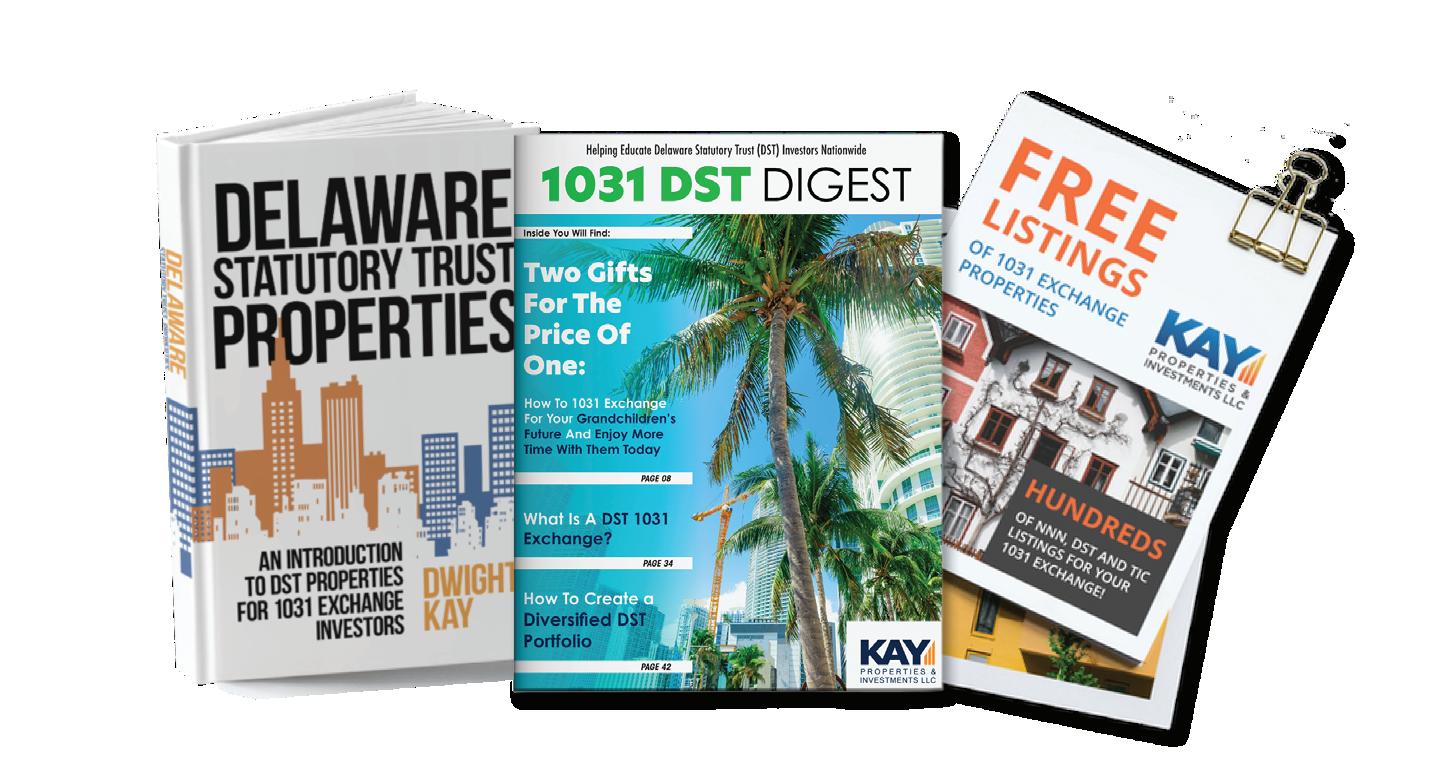




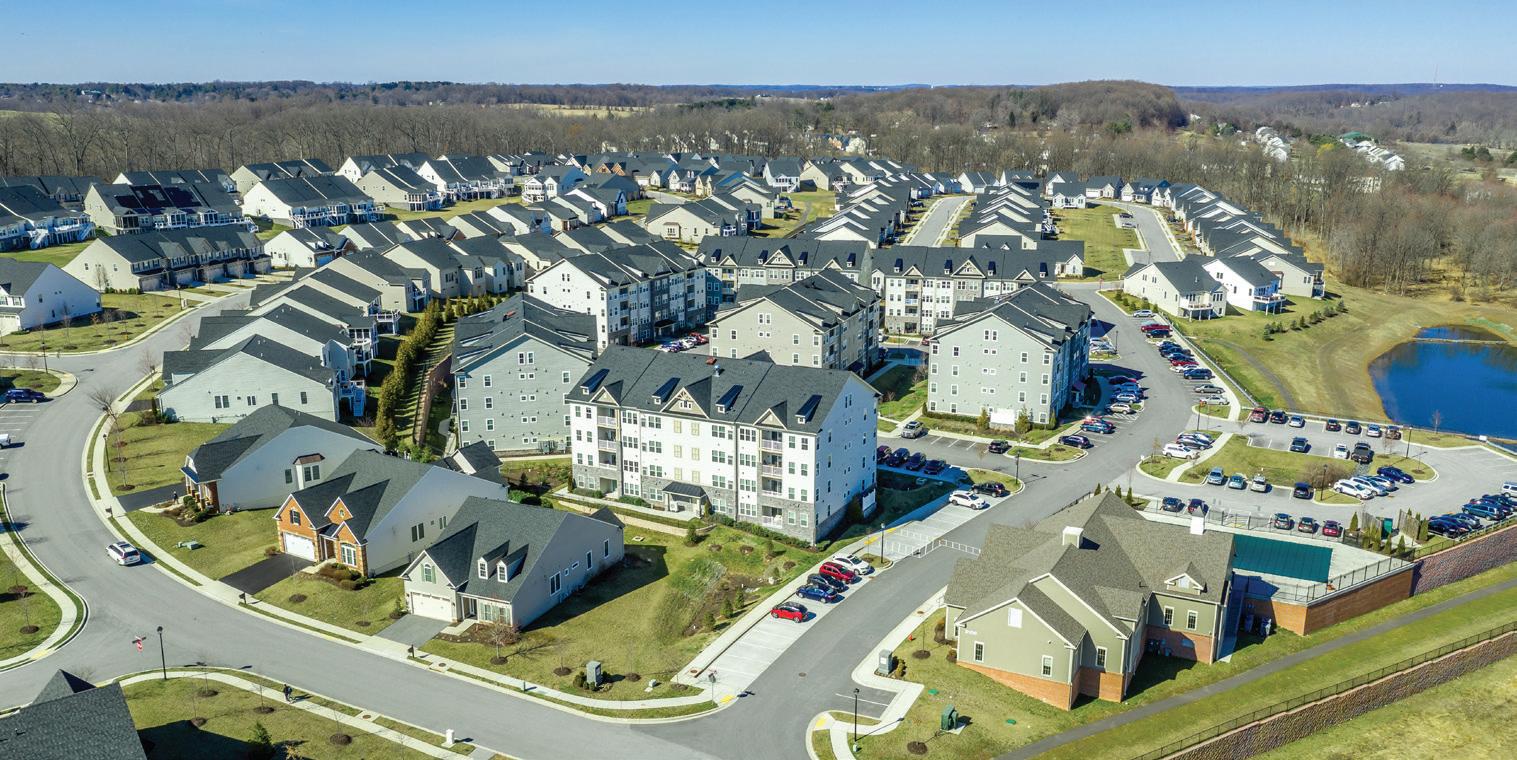



Daniel Bannon | Grassroots Organizer | dbannon@RHAwa.org | (206) 905-0609
It is not unusual for members to reach out to me wondering how they can meet with our staff in person to ask them questions about RHAWA or simply get to know the team that supports them. If you have ever wondered this yourself, you’re in luck! There are plenty of opportunities available to
our members to meet staff, learn more about the inner workings of the association and provide feedback on how the Association can improve. Our staff members are always excited to get out and meet our members face to face and we hope you are just as excited to meet us. In this article, I will go over some of the best ways you as a member can meet with our staff and learn more about the association and the people who make RHAWA function. While many of these suggestions will be obvious to our most involved members, there are definitely a few opportunities
that frequently go unnoticed and underutilized.
1The first and most apparent way for our members to meet our staff is to attend RHAWA events. RHAWA hosts a multitude of events throughout the year and each of these events presents an opportunity for you to meet one or all of our staff members. Some of these events are: TRENDS, The Spring Workshop and Tradeshow, our Annual Gala, and our Annual Business Meeting. These are some of RHAWA’s most elaborate events and they require nearly all staff members to be present in order to ensure the event runs smoothly, this means you are guaranteed to run into some staff members at any of these events! Some of you may remember meeting with
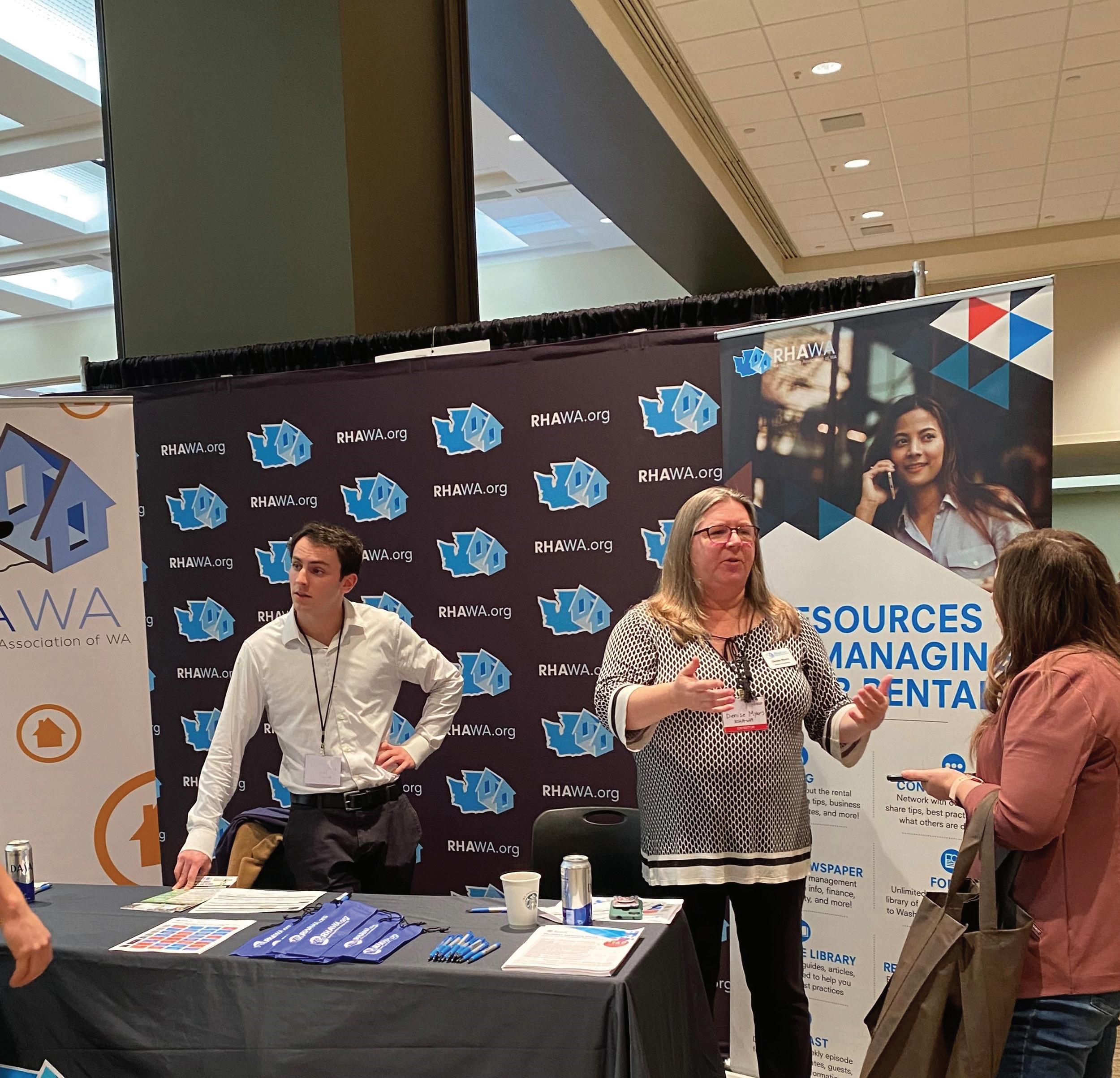
Denise, Luke, Melissa and myself at the TRENDS Conference. It was great for us to have the opportunity to get out of the office and make some connections with the members we work so hard to support. Furthermore, RHAWA always makes sure to inject some fun into our events, our 2022 Annual Gala was an absolute blast and were looking forward to topping it in 2023. So, if you’re interested in meeting staff, learning something, or simply having a good time, I certainly encourage you to attend one of RHAWA’s many events.
The second way you can meet with RHAWA staff is by attending some of our smaller events such as LINK meetings of our online classes. LINK Meetings occur several times every month at various locations around Puget Sound. The LINK Meetings take place in Snohomish County, Pierce County, and two in King County. LINK Meetings typically will have at least one staff member present as well as some of our most involved and knowledgeable members leading the meetings. As mentioned before,
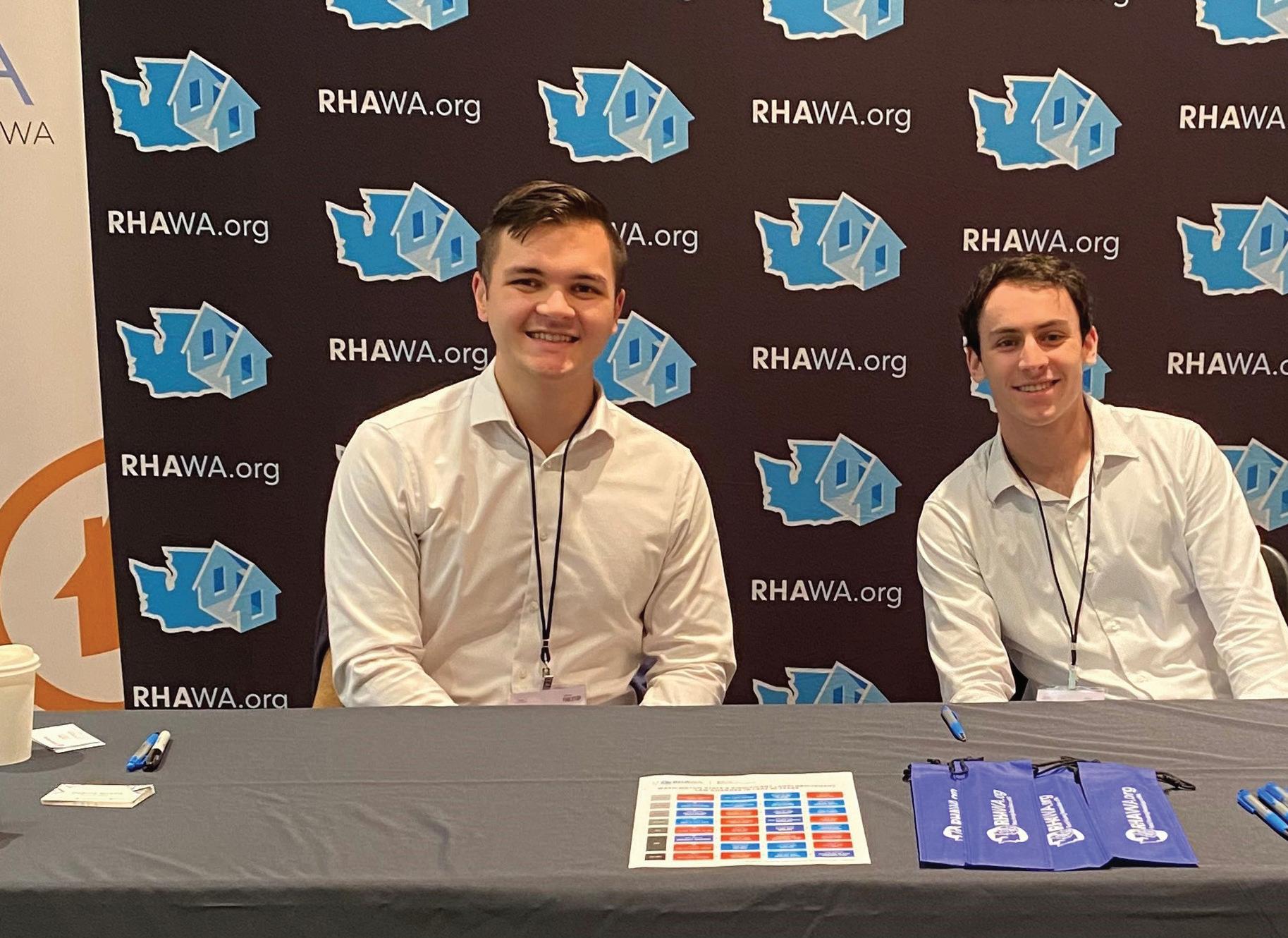
WA is always trying to find a balance between fun and informative and I believe LINK meetings are one of our most valuable and fun monthly events. We discuss different topics every month at these meetings, so I encourage all of our members to check out the schedule of topics that are already up on our website on the events page. While not an in-person interaction, RHAWA classes provide a great opportunity to interact with staff and affiliates of RHAWA as well. Denise Myers, our Education Director, is an incredible resource and hosts many of our classes, she helped get me up to speed when I first started with RHAWA and many of our members have spent hours learning from her in our Rental Housing Academy. Even if you can’t make it to one of our larger events, we have a multitude of opportunities for you to get to know the staff.
Another more overlooked way to meet with our staff is to attend other conferences in Washington State. For example, our Government Affairs staff recently attended an event called Roanoke which is a political conference in Ocean Shores. We met several members at this conference while also representing the interests of our members when speaking with some of the elected officials who were pres-
ent at this event.
Our marketing staff attended a Social Media conference in September of 2022 as well which not only educated us on new ways to market RHAWA, but it also fostered connections with some expert marketers from all across the USA. The connections I made at both of these conferences have informed my approach to marketing and advocacy going forward and I always find conferences to be a rewarding experience. So, if you’re interested in learning something and also having the chance to meet RHAWA staff, attending a real estate or political conference could give you the opportunity to do so. Just look for a booth with our logo plastered all over it.
The last method I will highlight to meet RHAWA staff is getting involved in our Government Advocacy efforts. As some of you are aware, we rallied over 125 members to come down to Olympia to testify against rent control in late January.
These members had the opportunity to learn about the inner workings of RHAWA’s government affairs as well as chat with staff to learn more about the association. Additionally, we host a minimum of two weekly meetings regarding our government affairs efforts during the legislative session which gives you plenty of time to learn about any upcoming legislation, chat with our government affairs team or ask our lobbyists any questions you desire. I have personally enjoyed getting to know some of you during the 2023 legislative session and I look forward to meeting more of you as the session continues.
There are plenty of ways to get involved and meet the individuals that make up our team.
Meeting with members is one of my favorite things about working for RHAWA and I hope you have found time to meet the staff at some point. If you have any questions about the opportunities I have discussed, feel free to give us a call or email! Looking forward to seeing you soon.

•
•
•
•
•
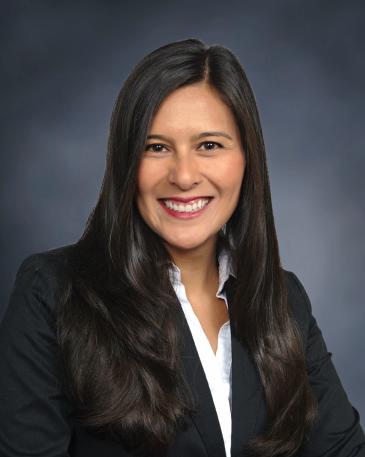

Chris Tighe, President | Elevation Construction | RHA Member


When I talk to investors about renovating their property, I always suggest working from the outside to the inside. The outside is the protective shell that will keep the elements out of the house and will protect your investment. Doing a renovation in reverse order could cost a lot more money in the end. In this article, we’ll discuss the different considerations and steps you need to take when replacing your roof.
Replacing a roof has many benefits. The most obvious one is that it will improve the appearance of your home. A new roof will give your rental property a fresh new look and will give your tenants the assurance that the landlord cares about the property. Additionally, replacing a roof will extend its lifespan. A new roof can last up to 20 years, so you won’t have to worry about replacing your roof for a long time.
Before replacing your roof, there are a few things you should consider. First, you should determine if your roof needs to be replaced. Some signs of a failing roof include:
• Curling or missing shingles
• If you’re looking from the outside and see bowing in the roof, that could be an indication that the roof decking is bad and will need to be replaced.
• If you have access to the attic space, look for water stains in the wood.
• If you see mold growing on the roof decking from the inside of the attic, it’s time to replace the roof decking and shingles, and update the ventilation.
Another consideration is the type of material you want to use. For shingle roofs, asphalt shingles come in a variety of colors, styles, and sizes, so you have plenty of options. For flat roofs, you can go with either a torch-down roof, EPDM (ethylene propylene diene monomer), or a TPO roof (Thermoplastic Polyolefin - primarily recycled rubber). In my experience, TPO roofs are of better quality and last longer (up to 30 years).
Additionally for flat roofs, if there are areas where the water pools during heavy rain storms, be sure to create a drainage system that will drain the water off of the roof. The weight of the water will create a problem over time.
Replacing a roof is an important job, so it’s important to hire a professional roofing contractor. A professional roofer will be able to inspect your roof and make sure that it’s in good condition before the replacement. They will lso be able to give you advice on the type of shingles that are best for your roof and climate. And, most importantly, they will be able to safely and efficiently install the new roof.
The cost of replacing a roof will vary depending on the size of your roof, the type of material you choose, and other factors. The cost will also depend on whether you hire a professional roofer or do the job yourself (not recommended). When hiring a professional, make sure to get multiple quotes and compare them before making a decision. Keep in mind that the cheapest quote can sometimes cost you more money in the end. Beware of contractors who underbid to later nickel and dime you with change orders.
Sometimes there could be just a simple fix for your roof. But if your roof shows obvious signs that it needs to be replaced, don’t keep spending money to patch up an old roof. Old problems will keep causing issues and they usually appear during rain storms. We recently did a job where two units got flooded out due to a bad roof. Not only did it cause damage, but the tenants had to move into a hotel while the units were being repaired. All of this could have been avoided with a new roof. All of the money spent on the damaged units could have been allocated toward a new roof.
Once you’ve replaced your roof, it’s important to take care of it properly. Regular maintenance will help keep your roof in good condition and extend its lifespan. Here are some maintenance tips for a roof:
• Inspect your roof regularly for any signs of damage.
• Clean your gutters and downspouts regularly to prevent water buildup.
• Trim any trees or branches that are close to your roof.
• Make sure your roof is adequately ventilated.
• For shingle roofs, check your shingles for any signs of curling or cracking.
Replacing a roof can be a pricey job, but it’s worth it in the long run. Replacing a roof can improve the appearance of your home, increase its energy efficiency, and extend its lifespan. When replacing a roof, make sure to consider the type of material you want, the cost, and the installation process. Lastly, make sure to hire a professional roofer for the job and properly maintain your roof. If you need help, check out our website for more information on roof replacements! We’d be happy to help!
If you are interested in learning more about Elevation Construction (and maintenance), check out our website at www.elevationconstructionteam.com or call us at 425-633-2416. Elevation construction can help you with any renovations on your rental property and we can help you with your maintenance work orders!
Dwight Kay, Founder and CEO, Kay Properties & Investments


Key Highlights:
• How DSTs help investors successfully complete a 1031 exchange
• Can DSTs potentially provide investors with greater diversification?
• How DSTs are utilized to help investors easily replace debt for their 1031 exchange
• DSTs can provide investors with a good backup option for a 1031 exchange Regardless of what economic trends are taking place, Delaware Statutory Trusts provide investors four timeless benefits for their 1031 Exchanges including deferring capital gains taxes, eliminating the headaches of active management (think the Three T’s: tenants, toilets, and trash), and the ability to create a more diversified* portfolio. Additionally, DSTs have the potential to provide investors with potentially consistent and durable income streams with the ability to achieve modest appreciation potential**.
Understanding how to best utilize DSTs for 1031 exchanges can be an important ingredient to maximizing the potential benefits DSTs can potentially provide investors. Here are four specific strategies real estate investors can leverage DSTs for their 1031 exchanges.
1. Debt Replacement.
One of the most popular uses of DSTs for a 1031 Exchange involves not having to secure financing. For example, if you are in the midst of a 1031 Exchange in today’s unstable debt market, you are likely having a difficult time finding a mortgage to satisfy your 1031 exchange requirements. DSTs, however, are designed to make it easy to invest in without having to deal with qualifying for and taking on a mortgage on own’s own. That’s why many investors find DSTs also make a suitable primary investment option for 1031 Exchanges. Kay Properties has a variety of leveraged DSTs that are pre-structured with non-recourse debt already built-in typically ranging from 30% to 70% offering loan to value (LTV). Because DSTs typically do not require you to have to qualify for a loan or even fill out loan documents, DSTs can create a reliable tool for you to access high-quality real estate investments without having to jump through the hoops of getting approved for a loan.
Another popular use of DST investments comes in the form of providing a cover strategy for leftover equity. Let’s say you sell one property and cannot find a suitable replacement property that uses the full exchange proceeds, and you now have leftover equity you need to place. One of the benefits DSTs can provide you in this situation is the ability to enter one without investing a lot of money. Because DSTs require a low minimum investment amount (typically $100k), they can be a good way for you to use any extra 1031 Exchange proceeds to avoid having a "boot" to pay taxes on. Placing the leftover exchange proceeds into a DST property can potentially allow you to achieve full tax deferral for your 1031 exchange.
If you are considering a 1031 Exchange, here are four ways you can use DSTs as a
Here’s an example of how DSTs can provide a cover strategy for your 1031 Exchange:
Let’s say you need to replace a $3,000,000 purchase price for a 1031 Exchange, but your real estate broker finds a property for $2,700,000. By investing the leftover $300,000 in a DST, you could successfully avoid the taxable boot. In this way, you could successfully complete your 1031 Exchange by acquiring both a real property investment and a DST investment with an aggregate value of $3,000,000.
3. Diversification* and true passivity.
You have probably heard the expression, “why to put all your eggs in one basket?” If you decide to invest in one single-tenant net leased property or one multifamily apartment building for your 1031 Exchange, that’s exactly what you could be doing. However, DST properties can potentially allow you to achieve a level of diversification that you would not be able to achieve if you only bought a single NNN asset or multifamily building on your own. By investing in a DST, you have access to a diversified* portfolio of properties that are often high-quality real estate offerings with very large tenants that are professionally managed and potentially provide monthly cash distributions. In addition, you can also achieve a truly passive management structure, eliminating the headaches of the Three T’s: “tenants, toilets, and trash.”
Investing in a single-tenant property, on the other hand, means you are relying heavily on the quality of a sole tenant. If that tenant fails to pay rent or even files bankruptcy, your income could likely be reduced or even completely eliminated. Similarly, would you invest all of your 401k into one company’s stock, even if that company is Amazon or Apple? Your answer is probably No. No matter how great a company is, you probably do not trust it with all of your family's wealth. In the same way, there is no perfect investment property. You may be able to mitigate your potential exposure to the various risks of real estate by diversifying*. DSTs allow for diversification* amongst a number of different income-producing properties.
4. Back-up option.
One of the many reasons investors should consider DSTs is as a backup option for their 1031 Exchange. Why is this an important factor to consider? Let’s say that you have successfully sold your investment property and are now proceeding to search for replacement properties that you can manage on your own. In today’s market, you may discover that identifying and closing on high-quality “like-kind” assets within the specified timeframe is not as easy as it sounds. This is when DSTs can be used as a backup option. The reason for this is because DSTs are pre-packaged specifically for 1031 Exchanges, so they can potentially be a very helpful tool to have in the bag in case your primary real property option falls through and you're facing a failed exchange. In addition, because of the turnkey nature of DSTs, you can often close on them within just 3 -5 days to give you a strategy to successfully complete your 1031 Exchange.
DST properties continue to be one of the most popular passive investment options for 1031 Exchanges. Knowing how to best use DSTs to avoid common 1031 Exchange challenges, you will be better situated to potentially complete your exchange and avoid the expensive taxes that could accompany a failed exchange.
Kay Properties team members are always available for in-person meetings, zoom meetings and conference calls with investors to educate and explain various DST options, strategies, and potential benefits and risks.
For a complete list of current 1031 eligible exchange DST properties, use the convenient QR code below and also receive your FREE DST 1031 Exchange Toolkit.
Dwight Kay, CEO and Founder Kay Properties & Investments
Dwight Kay is the Founder and CEO of Kay Properties and Investments, LLC. Kay Properties is a national 1031 exchange investment firm. The www.kpi1031. com platform provides access to the marketplace of 1031 exchange properties, custom 1031 exchange properties only available to Kay clients, independent advice on sponsor companies, full due diligence and vetting on each 1031 exchange offering (typically 20-40 offerings), and a 1031 secondary market. Kay Properties team members collectively have over 150 years of real estate experience, are licensed in all 50 states, and have participated in over $30 Billion of 1031 investments.
About Kay Properties and www.kpi1031.com
Kay Properties is a national Delaware Statutory Trust (DST) investment firm. The www.kpi1031.com platform provides access to the marketplace of DSTs from over 25 different sponsor companies, custom DSTs only available to Kay clients, independent advice on DST sponsor companies, full due diligence and vetting on each DST (typically 20-40 DSTs) and a DST secondary market. Kay Properties team members collectively have over 150 years of real estate experience, are licensed in all 50 states, and have participated in over $30 Billion of DST 1031 investments. *Diversification does not guarantee returns and does not protect against loss. ** Past performance does not guarantee or indicate the likelihood of future results. No representation is made that any DST investment will or is likely to achieve profits or losses similar to those achieved in the past or that losses will not be incurred on future offerings.
This material does not constitute an offer to sell nor a solicitation of an offer to buy any security. Such offers can be made only by the confidential Private Placement Memorandum (the “Memorandum”). Please read the entire Memorandum paying special attention to the risk section prior to investing. IRC Section 1031, IRC Section 1033, and IRC Section 721 are complex tax codes therefore you should consult your tax or legal professional for details regarding your situation. There are material risks associated with investing in real estate securities including illiquidity, vacancies, general market conditions, and competition, lack of operating history, interest rate risks, general risks of owning/operating commercial and multifamily properties, financing risks, potentially adverse tax consequences, general economic risks, development risks and long hold periods. There is a risk of loss of the entire investment principal. Past performance is not a guarantee of future results. Potential cash flow, potential returns, and potential appreciation are not guaranteed.
Nothing contained on this website constitutes tax, legal, insurance, or investment advice, nor does it constitute a solicitation or an offer to buy or sell any security or other financial instrument. Securities are offered through FNEX Capital, member FINRA, and SIPC.

VENDOR MEMBER
Bruce Davis, Sr. | Day & Night Plumbing & Heating, Inc. | 2020 Vendor Member of the Year
This question is asked so often the answer demands a revisit every now and then. If a water heater purchase is in your future we suggest that you read on.
One of the most common questions I get from Homeowners and Property Managers is this; are those small tanks we sometimes see on top of a regular water heater really necessary? If so, why? And if they are needed, do they ever need servicing or replacement? Yes, yes, and yes! Expansion Tanks are necessary, and here’s the story:
All manufacturers of conventional ‘storage tank’ style water heaters require a properly sized and applied Expansion Tank, or all warranties are void. And, because most all conventional water systems are ‘closed’ in nature, State Plumbing Codes also require a ‘means for expansion’ in all conventional water systems. Why?
If you have a tank with a 50-gallon capacity, and it’s full of cold water when that water is heated from ground temperature (about 45-degree F.) to 120-degree F, that 50-gallons of water becomes about 50.86 gallons of water and that extra ¾ of a gallon needs to go somewhere.
30+ years ago, municipal water systems were different and simpler. The Water Main under the street is connected to homes and buildings, sometimes without a water meter. In those days, when a water heater or boiler heated water and it expanded, the ‘extra’ water simply crept backwards into the water main. Nobody cared about it and few even knew about it.
As populations grew denser, and with the advent of ‘big box stores’, more people started doing their own plumbing and landscaping irrigation, and the incidents of ‘cross connections’ started to climb steeply. A ‘cross-connection’ happens when clean, potable water gets connected -even for just a few momentsto non-potable water…and people get very sick and/or die.
The Tragedy
Years ago on a hot afternoon in the Midwest, there was a house fire a block away from a local high school. The Fire Department came, hooked up to the fire hydrants, and began to pump water out of the local mains to fight the fire. The water supply in neighboring homes was reduced to a trickle. At the high school, football practice was in full swing. When they took a break to watch the commotion, they couldn’t get any water from their drinking fountain next to the field. Almost an hour later, their drinking fountain was working again, and everybody drank lots of water. Within a few hours, all were sickened, and within a few days, many of the team died.
It was later discovered that when the Fire Department was pulling water from the local water hydrants, they also sucked water back into the water mains that came in through irrigation sprinkler heads that were in puddles of water contaminated by fertilizer and dog feces. After the fire, when water pressure was restored, this contaminated water was sent back out into the system and delivered to the taps, toilets, and drinking fountains being used.
Due to many episodes like this, since the 1980’s there have been many upgrades in Water Systems and Plumbing Codes designed to help avoid cross-connections. Throughout the country, most municipal water systems have installed new water meters that have two integral check valves. These check valves help prevent water from flowing backwards through meters and out into the mains under the street. This created millions of ‘closed systems’ that needed to somehow handle the expansion that occurs when the water heaters did their job.
T&P valves (Temperature & Pressure actuated relief valves) have long been required on water heaters, but when they suddenly began to reside inside
a ‘closed system’, they began to pop off and/or leak a lot when the expanding water caused the pressure to grow very quickly. Every time more than a few gallons of water were heated the ‘roller-coasting’ pressure cycles would cause the sides of the water heater to ‘swell’ or bulge a tiny bit, and that’s all it took.
Storage Tank style water heaters are lined with molten glass during manufacturing, so the whole interior has a thin glass lining designed to protect the steel tank from the oxygen-rich water its heating. But the frequent swelling and relaxing immediately made thousands of tiny cracks in the glass lining, causing water heaters to leak and fail in 1012 years, instead of 20-30 years like in the ‘old days’.
Expansion Tanks are the Answer
Installing properly sized and ‘tuned’ Expansion Tanks to new water heaters became the best solution. A good Expansion Tank has a ‘bladder’ inside it that keeps the water and air inside it separated because the water going in and out of the tank would soon absorb the air and render the tank ineffective.


If the air on the ‘air side’ of the tank is adjusted/tuned to match the incoming water pressure, it allows the maximum amount of room to accept the increased size of the heated water. The size of the Expansion Tank, its placement in the system, and its “tuning”, all need to be very specific and follow the manufacturer’s instructions. And, the air pressure needs to be checked annually in a very specific manner, typically when the water heater is serviced. If the Expansion Tank is ignored, it normally will become ineffective in 3-6 years and will be like there is no Expansion Tank at all.
So, are Expansion Tanks necessary on most water systems? An emphatic Yes! Heated water expands, and in a closed system, it needs a good place to go without losing it through the T&P Valve. And yes it needs to be properly installed, tuned, and serviced annually. A Licensed & Certified Plumber knows your equipment, the local codes, and the local Municipal Water Systems specs and conditions. And they are the best bet to help you protect your investment and get the most value, life, and service out of your water heating equipment.
Bruce Davis, Sr. is a Licensed Journeyman Plumber, Licensed Electrician, HVAC/R Electrical Administrator, HVAC/R ,and Certified WA State C.E.U. Instructor. Day and Nite Plumbing and Heating, Inc has been in Lynnwood serving Snohomish and N. King County for over 68-years, and Bruce Sr. has been President and working at this family-owned business for 36-years. Bruce can be contacted at: Email: Bruce@ dayandnite.net.Day and Nite Plumbing and Heating Inc. 16614 13 Ave. W., Lynnwood, WA 9803, (800) 972-7000.

Paragon Real Estate Advisors is the premier Seattle real estate investment firm for multi-family property sales in Washington State. When it comes to apartments and investment real estate in the Puget Sound region, we are the smart choice to partner with.
Call us today to speak with one of our experienced commercial brokers to start a free property evaluation.
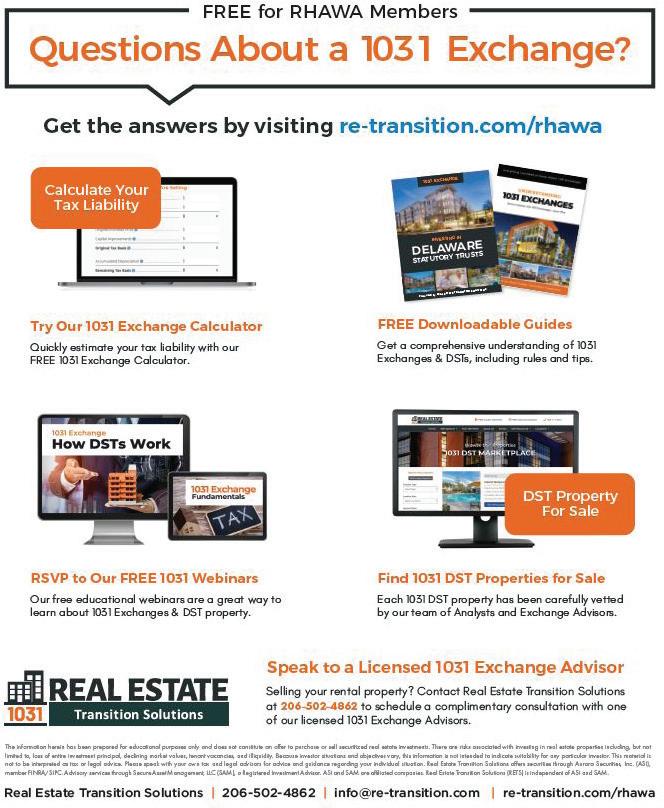


Licensed, Bonded and Insured Daily Job Site Cleanup
Up to 30-Year Material Warranty
Maintenance-Free PVC Material
Designed and Warranted for Ponding & Pooling Water Conditions
Complete Alternative to Hot Tar and Torch Down

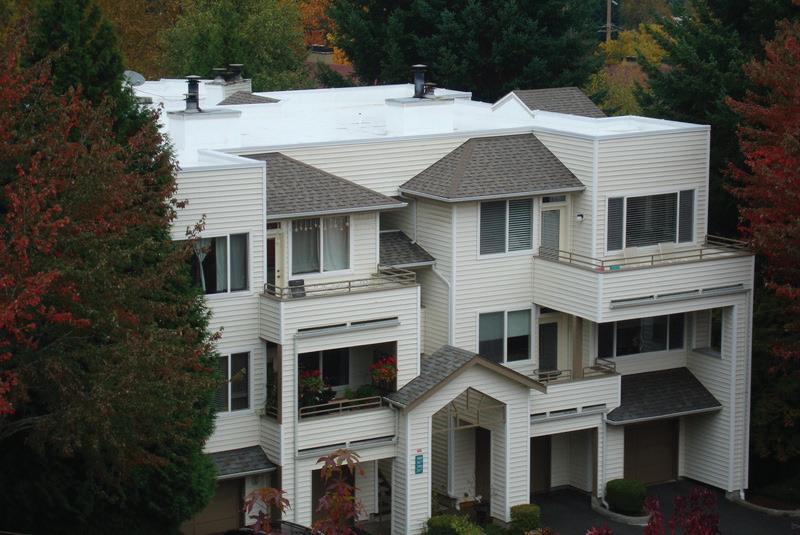


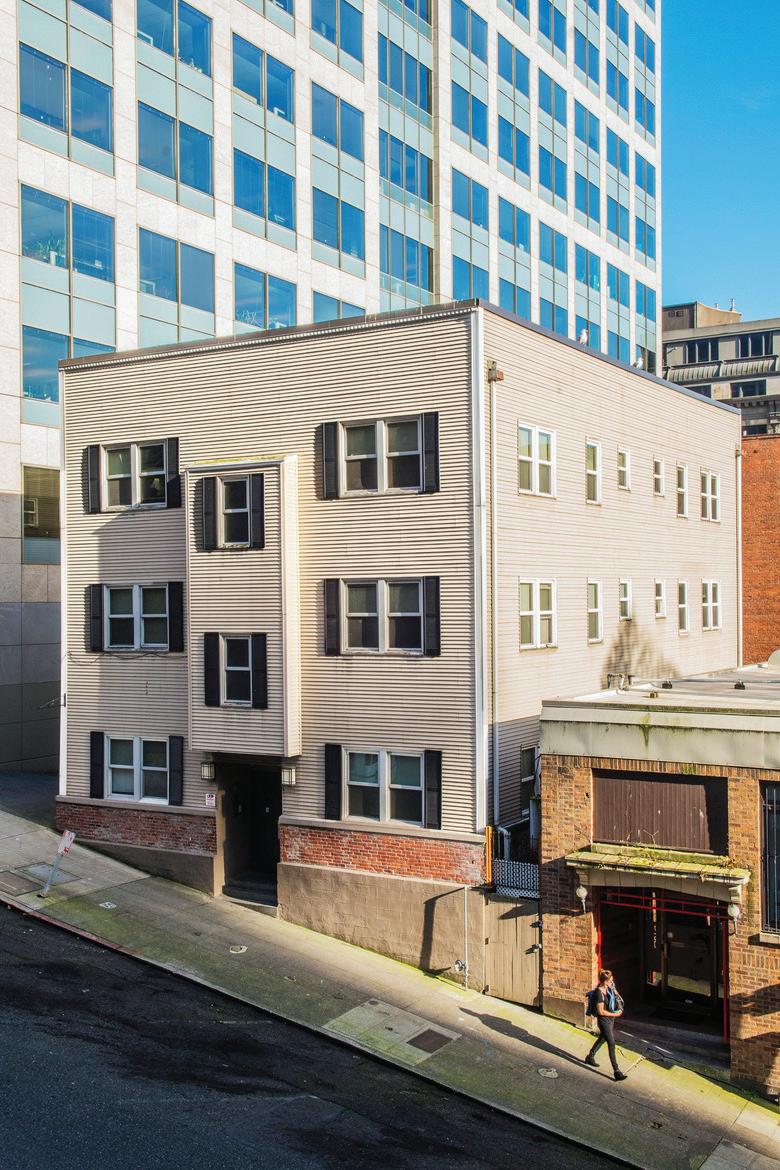
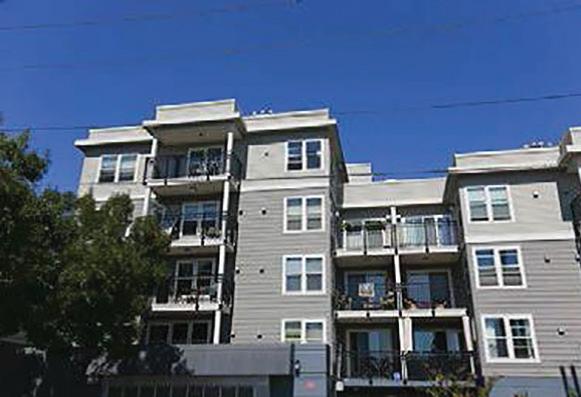

We are very proud to be family owned and operated company. Our focus is to solve customers’ roof problems and concerns with a reliable, high-quality system. Our dedicated crews treat our customers’ roofs as if it were our own.
Polyflex G (torch down) provides an exceptionally durable roofing product and will provide long-term weathering performance. With a granulated surface, Polyflex G exceeds all minimum ASTM standards for tensile strength, puncture resistance and flexibility. This roofing system won’t melt in the sun or become brittle like some other membranes. Torch down roof membrane is ideal for Northwest roofs; where common branches sometimes fall, residents want a roof-top patio and adding skylights are easy to do. Builders and consultants trust the quality materials that make up torch down roof system and the approved Contractors who install them.
We are a registered Polyglass Contractor (#5008).

Proud Sponsor of


About Elizabeth Gregory Home (EGH) EGH inspires homeless women to transform their lives. Through services offered, women can meet immediate needs, as well as long-range goals to break the cycle of homelessness.
Learn more about EGH and how you can help at eghseattle.org. Thank you.
Roof Replacement
Roof Repairs
Ventilation & Drainage Revisions
Preventative Maintenance
Specializing in
Apartment Housing
Condominiums
Commercial Property
Multiplex / Duplex
Special pricing for RHAWA members AND $100 donation toward EGH with paid re-roof contract!


